Karamea Kinaki
Kemmasandi
- Created
- 6 years, 8 days ago
- Creator
- Kemmasandi
- Favorites
- 44
Profile
🟔 KARAMEA KINAKI 🟔
❛ I usually get along better with computers than with people. Are you sure you're not a robot? ❜
— Karamea Kinaki, showing a sense of humor that very few have witnessed.
➥ KARAMEA KINAKI
-
Kanji Name木泣 カラメア (幹芽娃)
-
Romaji NameKinaki Karamea
-
NicknamesKara ━ by her family
Grumpycat ━ by Toshinori
-
BirthdayJanuary 28.
-
Age31
-
GenderFemale
-
EthnicityJapanese // Ainu
Māori //Indo-Fijian -
BirthplaceRumoi, Hokkaido
-
Current ResidenceMusutafu, Shizuoka Prefecture
-
Height5'10" — 178cm
-
Hair ColorDark steel-grey, silver streak on left temple
-
Eye ColorDark purple-grey
-
Blood TypeA
-
StatusAlive
-
FamilyĀwhina Rutherford [mother]
Ikuma Kinaki [father]
Rikiho Kinaki [sister]
Toshinori Yagi [partner]
Kahurangi Yagi [daughter]
Mako Yagi [daughter]
Hayato Yagi [son]
Akinori Yagi [son] -
OccupationTech developer
Digital Security specialist -
AffiliationsMinato Company
Kinaki Technologies [founder]
U.A. High School [guest lecturer] -
SpecialtiesDigital Security
Penetration Testing
Robotics
-
SeiyuuMaaya Sakamoto — [ Ciel ]
-
Theme SongLorde — [ Yellow Flicker Beat ]
Karamea Kinaki (木泣 幹芽娃・きなき カラメア・Kinaki Karamea) is the elder daughter of the Pro Hero Machinator, Ikuma Kinaki, and Āwhina Rutherford, a Professor of Linguistics at Hokkaido University. She currently works as a development consultant for the Minato Hero Support Company and a guest lecturer for the Support Department of U.A. High School. She is also the founder, CEO and lead developer of Kinaki Technologies.
A genius with a spectacular Quirk, Karamea was encouraged to develop her technological abilities from an early age. She attended Shigi Academy, an elite STEM-focused high school, and upon graduating from Tokyo University was headhunted for a position at the prestigious Minato Support Tech company. A setback in the form of chronic illness took her out of work for a couple of years, but resulted in a serendipitous late-night encounter with Toshinori Yagi. They quickly made friends, and later on embarked on a romantic partnership, going on to have four children together: Kahurangi, Mako, Hayato and Akinori.
APPEARANCE
Karamea is a tall, thin woman with an angular, catlike face and the kind of visible bone structure that comes from being about ten kilograms underweight. She has a long-limbed frame with narrow shoulders and hips and a small bust, giving her a noticeably androgynous look from a distance. Given her thin build, her muscles are pronounced, particularly in her upper arms (souvenirs of a life spent trying to wrangle power tools and wrestle machinery into submission). She also has arachnodactyly ━ unusually long fingers and toes.
Her skin is light brown with an orange undertone, courtesy of her Polynesian and Indian ancestry. Her hair is dark purple, wavy in texture, and very long ━ nearly knee length when loose. There is a natural steel-grey patch at her right temple, which can also be seen in most of her paternal relatives. Her eyes are dark purple-grey, heavy-lidded beneath thin brows. While the majority of her chronic illnesses are invisible to the observer, she always has strong dark marks on the lower lids of her eyes from persistent lack of sleep.
Her forehead and wrists sport brightly-coloured digital ports like those one might find on the back of a computer. There are eight of these in total, four on her forehead and two on each of her wrists. These can change shape to accommodate most kinds of input, from USB jacks to TV cables and charger cords. The ports on her forehead are orange, while those on her wrists are purple.
Karamea's speaking voice is androgynous and somewhat deceptively young in tone, even as she ages; she makes jokes about being mistaken for a twelve-year-old boy on the phone and it may even have happened once or twice. She has inherited something of the vocal abilities of her mother's family, though these are not striking enough to be Quirk-related━more along the lines of a natural voice actor. Karamea has a knack for adapting certain character voices despite her utter lack of interest in acting; she can go high-pitched and sweet, variable and sassy, or low and aggressive without much thought.
▮▮▮ WARDROBE
Karamea's wardrobe is full of clothes in all sorts of colours and styles━she isn't picky about what she wears. She is perfectly capable of putting together a stylish outfit coordinated against her natural colour and body type, and does enjoy doing so, but other times she will simply wear what's most comfortable regardless of how mismatched it is. She prefers cotton and wool over synthetic fibres, which often make her itch, and has a marked enthusiasm for long jackets, surcoats, and capes. When she wears traditional clothing, she tends to favour the Ainu style over Japanese kimono.
▮▮▮ GALLERY
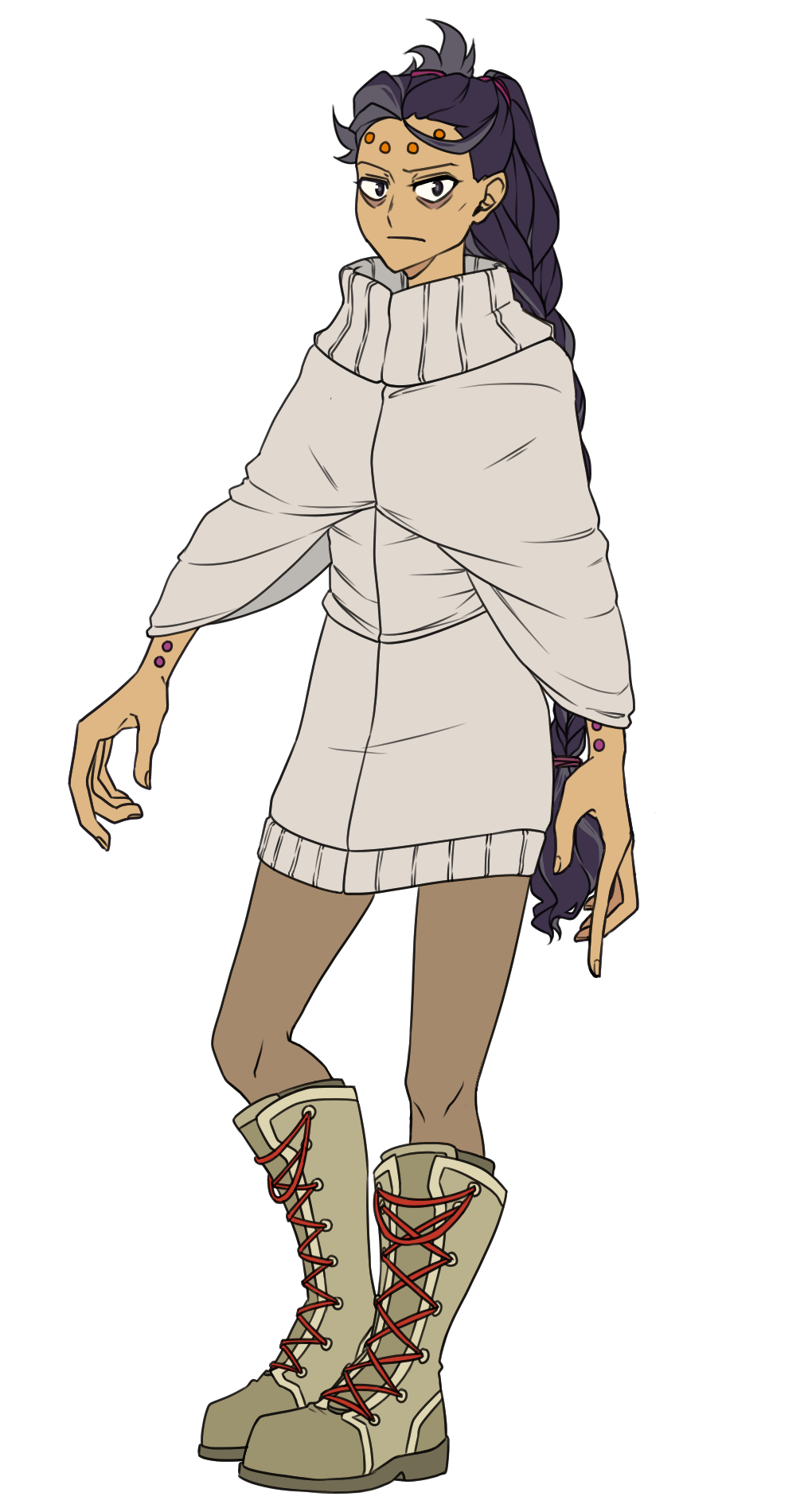
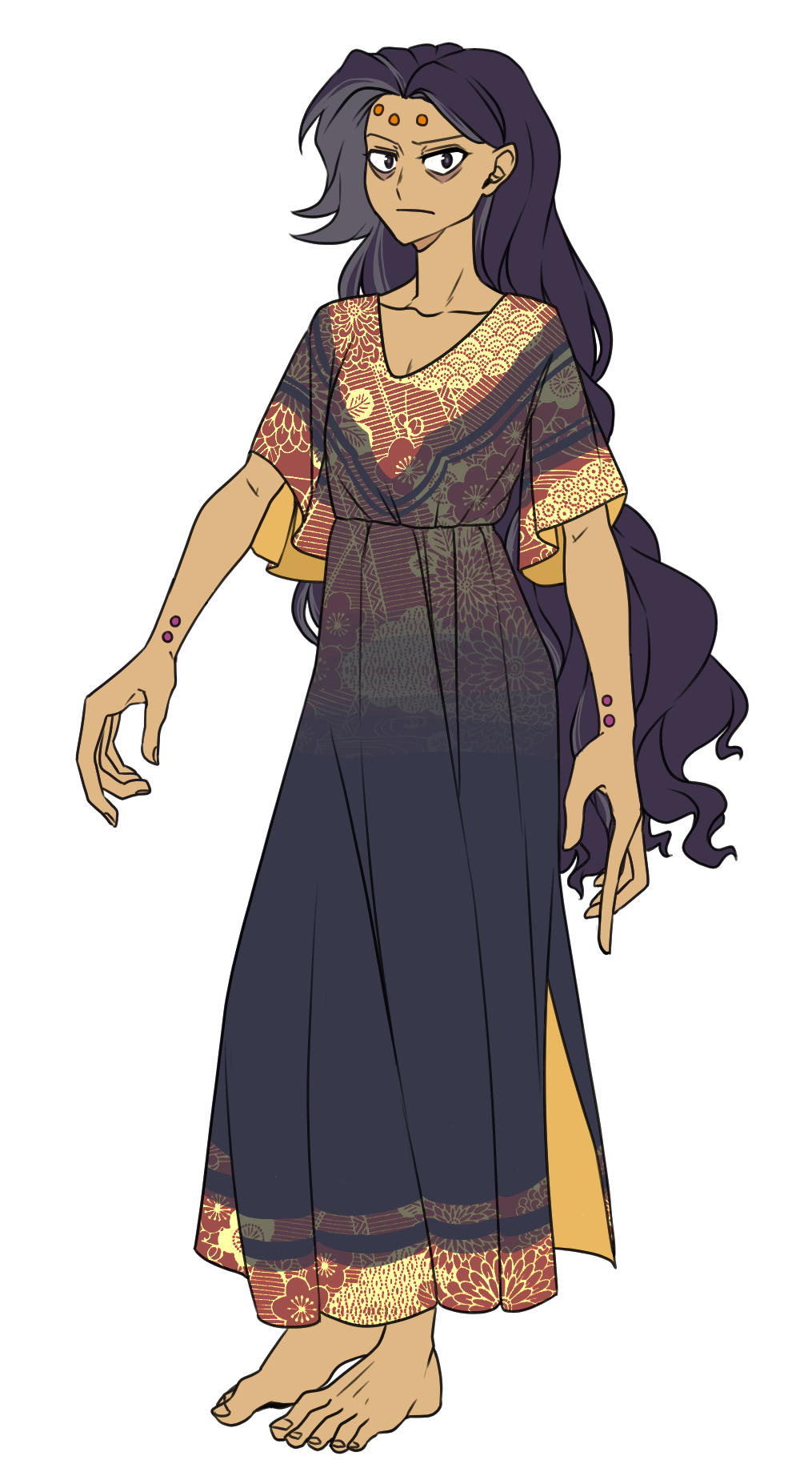
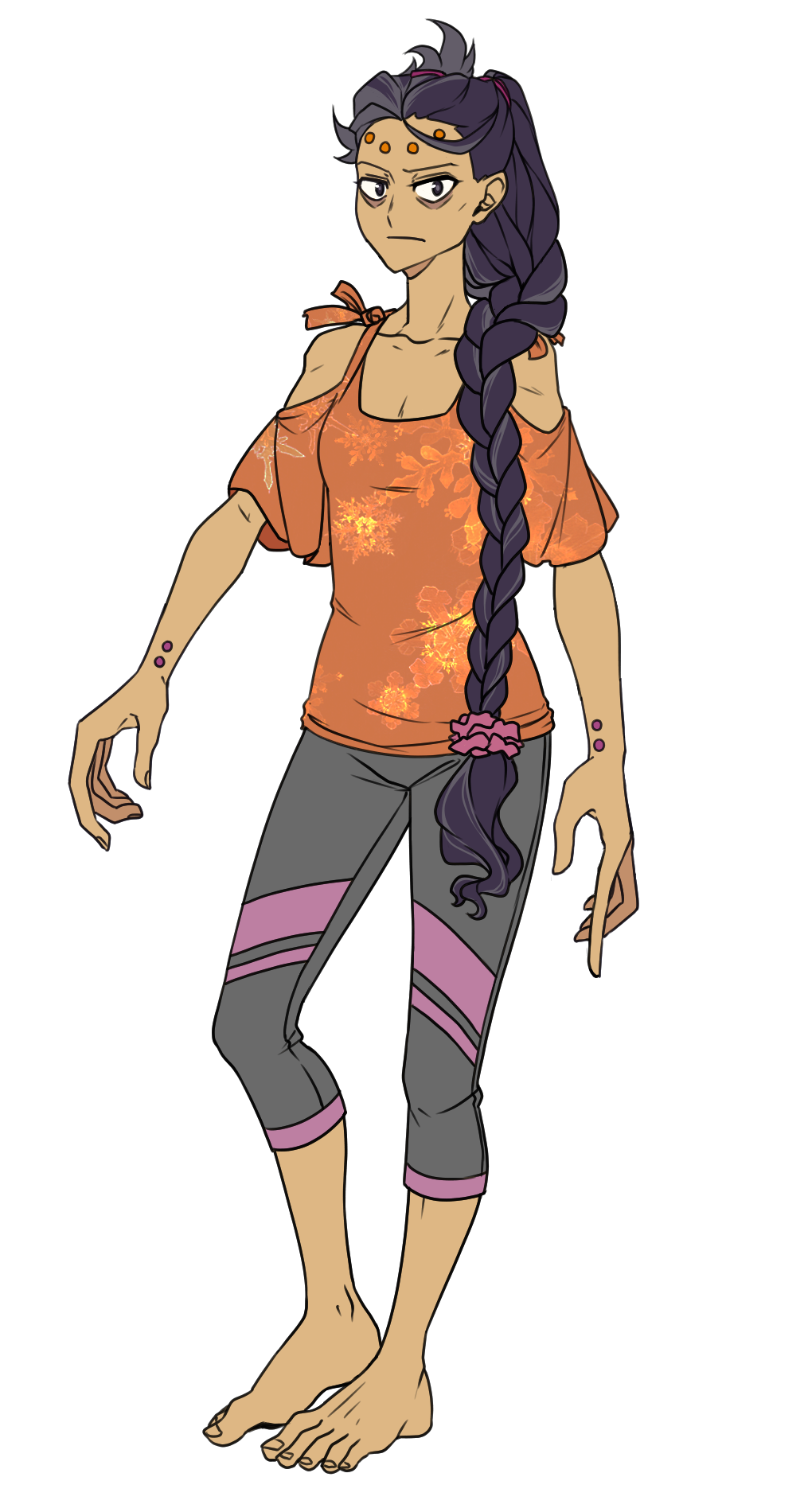
PERSONALITY
analytic ⋆ unsocial ⋆ blunt & tactless ⋆ subtle sense of humor ⋆ verbose ⋆ sarcastic ⋆ lacking energy ⋆ blunted affect ⋆ routine-oriented
Temperament: Melancholic
Enneagram: Type 5 ━ 'the Investigator'
MBTI: INTJ ━ 'the Architect'
▮▮▮ LIKES
━ machines, robotics & computer engineering
━ science-fiction stories
━ fried white fish with vinegar & aioli
━ solving difficult or persistent problems
━ making budgets & plans
━ heavy blankets & big winter coats
━ soldering & welding
▮▮▮ DISLIKES
━ bright, visually complex environments
━ slimy foods: tomato skins, cooked onion, boiled cabbage
━ unclear, imprecise writing & badly-designed programs
━ organic detritus & plant matter, dropped leaves off Toshinori's plants
━ shiny reflective surfaces in the presence of bright lights
━ sudden changes of plan
━ hot, humid weather
▮▮▮ HOBBIES
━ designing and racing aerial drones against her father and sister
━ watching terrible sci-fi movies with Toshinori
━ engineering ever larger robots
❛ Look, I haven't got the patience or the temper to deal with this today. I'm going to go away for a bit, and when I come back, either the problem is gone or I am gone. ❜
— Karamea, demonstrating her primary technique for dealing with conflict. It's not very effective.
First encounters with Karamea tend to leave people wondering: why is she Like That? What the fuck is her problem? Frequently: what the hell does All Might see in her? It often takes time to bring out her good qualities, and a lot of people write her off as an antisocial weirdo before they get to that point.
From the first meeting, it's obvious that Karamea is an incredibly intelligent person, sharp as a tack and highly perceptive. Her strengths lie in the realm of fact, analysis, and science. Her ability to cross-reference data on the level of a search engine and store memories in a re-readable (and potentially shareable) format makes her intellectual capabilities doubly formidable. She thinks in ideas, scenes, and scenarios, and sometimes has trouble articulating her thoughts under pressure because in order to do so she has to translate non-verbal concepts to words. She is a little less comfortable expressing herself in verbal speech than written text; her speech can be slow and is often marked by pauses where she's looking for a precise word. Her formal language and academic communication skills are exceptional in general, however. (Her informal, social communication skills, not so much.)
Being autistic, she often struggles in social situations. A combination of lack of empathy for others, difficulty reading facial expressions and picking up on attitude cues, and lack of interest in topics outside of her current focuses means that she can be blunt and come across as apathetic or dismissive when mostly she just doesn’t know how to react. She also has only basic comprehension of what others might find rude; she's been called brutally honest a few times, and it's often not complimentary. (With that said, she can take what she dishes out for the most part.) She also tends to take things literally — while she loves to use sarcasm herself, she is not good at recognising when others are being sarcastic. She needs hours or days to prepare for relatively small things like going shopping (she tries to buy things online, but for some, this is impossible). On the flipside, sudden cancellations stress her out even more than the expedition itself. She thrives in routine and planning ahead.

Karamea lacks some of the same chemical features and pathways that a normal person would have; these have been converted into digital processes. She's intensely cerebral as a result ━ she does have feelings and emotions and lizard-brain reactions, but her brain processes them very differently, so she often doesn't react as one might expect. She has a blunted affect, meaning that she comes across as stolid and unemotional to the casual observer. She is stolid and unemotional for the most part; her emotions do exist, but they are often weak or simply easily dismissed. Karamea most often experiences them as 'mild volition', which feels very similar to her whether it is rooted in irritation, enthusiasm, or boredom. The other end of her emotional spectrum saps her energy: this is sadness, resigned frustration, and also boredom. She has a terrible resting bitch face as a result.
Karamea develops long-lasting and extremely intense interests in her favourite topics, which then become all she really wants to talk and think about at any given moment. Her longest-lasting obsession is robotics—her parents threw her a robot-themed party for her third birthday, and now she develops AI as part of her work and has a side hobby in complex automata. Her other interests include psychology and neuroscience, and a particular long-running Friday-night space opera anime. When she engages with her special interests her personality very nearly inverts; she becomes excited, talkative, and often significantly more energetic. This does not mean she has become more sociable, however; she remains as awkward and disengaged from people as ever. She'll just talk your ear off about complex digital engineering concepts as she does so.
She has something of an anti-authoritarian streak: as a child, when her parents told her not to do something, they had to tell her exactly why they didn't want her to do it, otherwise she would go and do the thing anyway. As an adult, she has a marked tendency to think that she knows best ━ and, to be fair, she often does ━ but she is not infallible and this tendency does cause issues for her.
Karamea can be, frankly, a vindictive bitch when pressed. She holds grudges for years, is able to hide her initial emotional reactions well, and has an instinctive preference for the 'an eye for an eye' type of justice. She seldom acts impulsively out of anger, but that anger festers, driving her to hold onto the original injustice long after it has passed into history, and to escalate her eventual response out of proportion to the original offense. She is aware of this fault, and indeed that it is a fault. After years of self-analysis and personal development she now seldom gives into this tendency, but the underlying urge is still very much present.
She deals with chronic pain and fatigue on a daily basis as the result of her cocktail of chronic illnesses, which likewise wears down significantly on her tolerance for bullshit. Her pain tolerance is fairly high; her medications take the edge off it and allow her to function as normal, but there's always an ache there in the background, sapping her energy. She has a wicked sense of humor about her disabilities, making jokes about them when the opportunity comes up. She and Toshinori share this tendency, and will joke about each other's disabilities as well. She calls him her discount Halloween decoration; he calls her his personal sleep paralysis demon. This is a coping method, helping them normalize their disabilities and accept their lived reality.
Her internal motivation to succeed and prove herself is fueled largely by ambition. Karamea does not lack for self-confidence ━ sometimes in fact she can be subtly full of herself ━ and money is only a tool to her, she has little appreciation for riches. What she wants most of all is to find answers to problems, to complete projects, and to map the entirety of an idea in physical form. She doesn't necessarily care if anyone else witnesses those achievements; just proving to herself that it's possible would satisfy her.
Karamea gets an intense thrill from working with very large machines. The year after she joined the U.A. staff, they let her upgrade the entrance exam robots, which resulted in a year group with a significantly lower average exam score than previous years. Her second-largest long-term project, behind starting her own tech company, is creating a semi-autonomous bipedal robotic body ━ a 'mecha suit', if you will ━ which can then be used to take on villains regardless of the physical and quirk capabilities of the person behind the robot.
Her ultimate goal, mad science permitting, is to figure out if it's possible to 'upload' a human consciousness to the internet.
▮▮▮ SPIRITUAL BELIEFS
Karamea follows a set of syncretic beliefs passed down from her father's family, combining Ainu traditions and belief in kamuy with Shinto and Japanese Buddhist traditions passed down from her Japanese ancestors. These are deeply personal beliefs; the Kinaki family do not identify with any form of organised religion beyond their local Ainu community. Karamea does not believe in gods as supernatural entities; she interprets kamuy as the immutable idea of a thing which exists in human minds, where her relatives tend toward a more traditional view of kamuy as spirits. Despite her more metaphysical view of her religion, she participates freely in her community's religious practices, such as the 'spirit-sending' ceremonies to return the kamuy of various things to the land of the gods, and has never perceived a conflict between her atheism and her religious participation.
▮▮▮ SKILLS
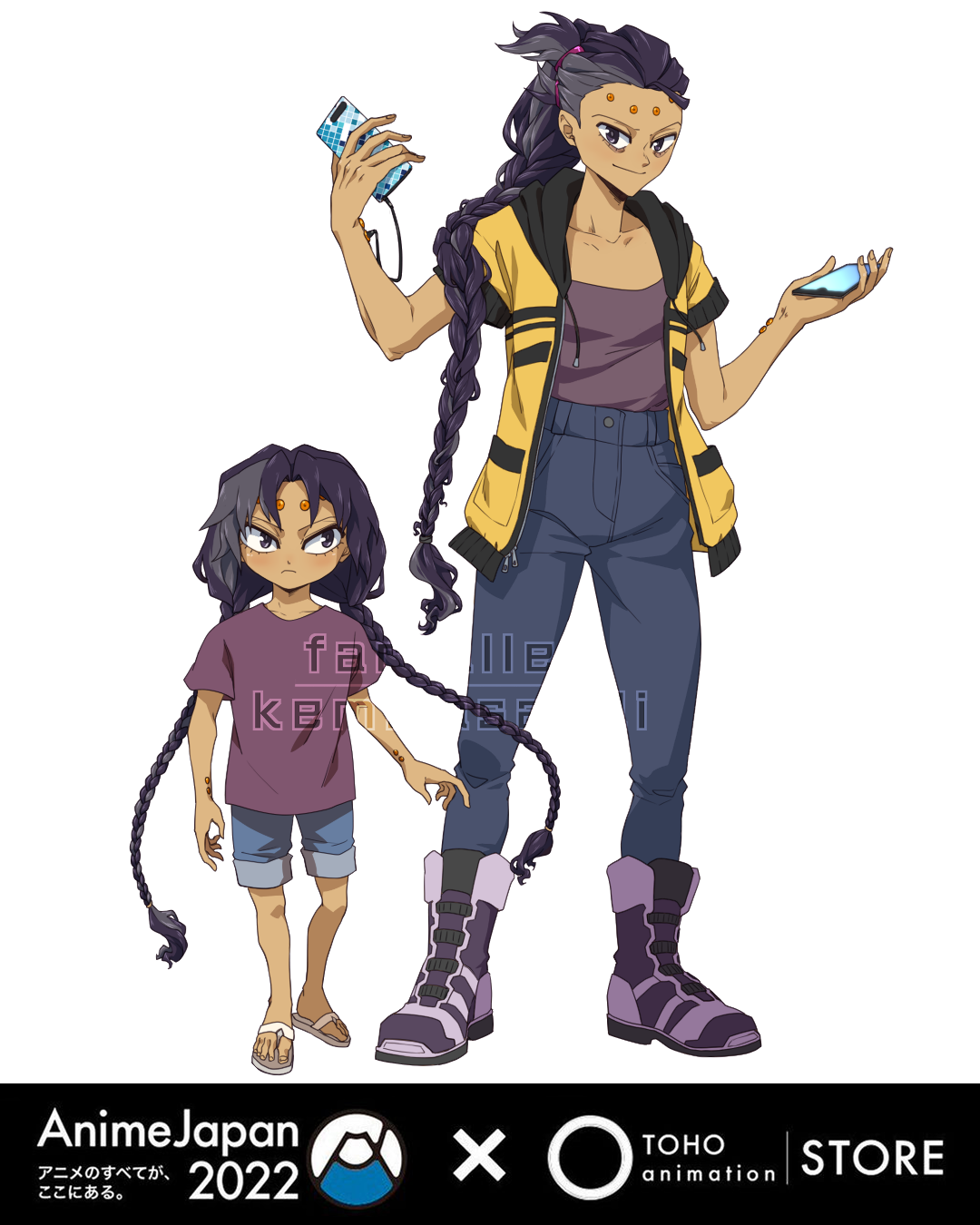
⸻Programming
Starting from creating simple apps as a toddler, Karamea developed her programming skills throughout her childhood, resulting in a broad and very solid base of knowledge with which to supplement her Quirk's natural abilities. She is fluent in more than twenty different programming languages, and has through an extensive development period created her own operating system based on the programming in her own head, which eventually becomes the basis of her tech company. She loves programming, finding the work often paradoxically relaxing even when it's crunch time and the code isn't working the way it's supposed to.
⸻Robotics & Machine Learning
Karamea's first love, a combination of all the above with mechanical engineering. For a long time, building and engineering ever larger robots was simply a hobby she worked on between her official work. Then she started her own company, and suddenly had the resources and manpower to really go big with her designs.
⸻Digital Security & Systems Penetration
When she was younger, during high school, she considered focusing on digital security and forensics rather than tech development, and while she ended up choosing engineering over analysis she keeps herself educated on developments in the field. She is a very skilful hacker, having literally grown up getting herself into new and exciting computer networks; her first job out of her Master's degree occasionally loaned her out to their associated cybersecurity team as a penetration tester and white hat hacker. Karamea deeply enjoys this work, finding it a fun challenge, and so far she hasn't met a system that can keep her out for long. Fortunately for those whose systems she tested, most met stringent security standards regardless.
QUOTES
Think of it this way — the only thing my Quirk really does is allow me to communicate in machine code. The rest I had to learn the old-fashioned way. To succeed in this field, you need a solid base of knowledge to draw on, and you need experience. A useful Quirk is only a leg up at the start of your journey.
━ to her students on the first guest lecture of the year
I think a Hero is only as good as what they put into the world, and there's a lot more to that than a flashy Quirk or beating up villains.
━ to Izuku Midoriya, trying to be supportive
This would be so much easier if I didn't have to keep topping up on painkillers.
The gods had to give you some sort of Achilles' heel, otherwise you might have taken over the world.
Oh, that's on the agenda for next year.
━ with Toshinori Yagi
Toshi, I think I might have fried one of your plants....
━ demonstrating her complete lack of gardening acumen
QUIRK: Human CPU
➥ QUIRK DATA
-
Name人間シーピーユー [ ningen CPU ]
-
RatingS » Quirks with a comprehensive effect on people or the environment; potentially very dangerous
-
ClassificationMutant
» Technopathy
» Neurological Mutation -
Active RangeDigital
》》》Human CPU is a genuinely unique Quirk. There are plenty of technopaths in the world, some of which have similar physical manifestations and a rare few of which are comparably powerful. However, none of them are as comprehensively integral to their user's existence. If Karamea did not have her Quirk, she would be an entirely different person.
Her Quirk was first noted in her mother's prenatal ultrasounds, barely visible in the later months of pregnancy as a network of extremely thin metallic filaments throughout the fetus' body. When Karamea was born, her digital ports were already fully developed, though she was fifteen months old before anyone tried putting anything in them. Her Quirk was registered at birth as Digital Uplink, extrapolated from the appearance of her ports. It was later updated to Human CPU to reflect the comprehensive nature of her mutation.
Karamea's entire nervous system is affected by her Quirk to some degree, with alterations being most obvious in her brain and the inorganic connections to her wrist ports. Her brain activity is measurable by EEG, but completely incomprehensible. She can be plugged into specialist digital monitoring enquipment, but beyond the very simplest machine-code monitoring her mental processes are indecipherable to this method as well. She appears to have her own operating system, which runs on several different programming languages entirely unique to her. Karamea is the only one who knows anything about how her brain works, and she's not spilling the deets.
She can interact with any sort of digital technology by plugging herself into any available ports and communicating directly with binary machine-code impulses. In order to make sense of the data she reads, she needs to know how the system works from the ground up, requiring extensive knowledge of programming languages, operating systems, and the hardware and software which make up the system. Her Quirk did not give her an innate understanding of any of this, but it did make learning a quick, efficient process. Information is stored in dedicated places in Karamea's brain, allowing her to 'save' the info just by thinking about it, and to sort through stored data like a file library and pick the appropriate ones at a later date, like a database running a keyword search.
▮▮▮ ADVANTAGES
- Over time, Karamea has built up an extremely close relationship with her various bits of technology. She's figured out how to translate some types of sensory information into data types which can be read, stored, and played back by computers, how to transfer the contents of her thoughts directly into program files, how to download some types of data directly to her own brain, and many more specific applications at the speed of thought.
- If she wants to stream a live audio and visual feed, for example, she no longer has to use a camera and microphone to do so; she is capable of converting the information being processed by her brain into streamable data in real time ━ all she needs is a device with an internet connection.
- When she’s hooked up to her computers she can essentially run translation programs in her head, giving her the ability to communicate in just about any language well-attested enough to have online databases or translation programs, such as Google Translate. She may not be perfectly fluent in languages spoken with this method, but she does well enough to get along.
- As long as she's connected to her system, she can remotely access any drive in to her system via physical or wireless connection at any time. Barring issues like lack of data coverage, she is also permanently connected to the internet when uplinked with an internet-capable device.

▮▮▮ DISADVANTAGES
- Karamea's nervous system shows up as metalloid on CT scans. She has a note in her medical profile that she is not to be subjected to MRI scans due to the potential risk of magnetic disturbance.
- She must know the programming language/s being used in each program in order to do anything with the program in question. This was more of a disadvantage as a child than it is now, as she has learned more than two dozen different languages from HTML to C++ to COBOL. The same sentiment applies to operating system; she's best with PCs and Linux, and has an irrational dislike for Apple products.
- If she is cut off from her external memory banks (by power cut or connection issues, usually) she loses that information until such a time as it comes back online. Likewise, if she doesn't have a computer or at least an internet-capable device with her to connect to, she's shit out of luck.
- Unlike some other forms of technopathy, she cannot force a machine to operate beyond the limits of its capability. Almost everything she does is theoretically possible to do as a normal human (or perhaps a sufficiently advanced AI). Since most normal humans must work with the limitation of a keyboard or touchscreen, Karamea is usually faster and more accurate at what she does.
▮▮▮ OVERALL ABILITIES
⸻Perfect Memory
The way Karamea's memory works is essentially by taking a snapshot of whatever she wants to remember and storing it in that format: primarily visual, audial, text-based, static image or video. As a result, she has extremely accurate recall, even years or decades after the memory was originally stored. The memory is also transferable, allowing her to offload memories she doesn't anticipate needing into external storage. She has several native file formats, some of which are able to be converted into more standard file formats, such as static images into PNG or TIFF, and text into PDF. Some file types cannot be converted: these are primarily taste and scent and tactile data which can't be read or reproduced by a standard computer. Given the role of information retention and recall speed in perceptions of intelligence, this ability contributes significantly to Karamea's overall genius.
⸻Personal AI
Karamea's brain combines the human capacity for meaningful thought with the pattern-recognition and statistical analysis capacity of a generative AI. The former takes a little more effort; the latter can be relied on when she's feeling lazy or tired. She often brainstorms various ideas using an internal generative engine the way a writer might throw ideas around with ChatGPT to explore the potential of an idea before fleshing it out themselves. She often uses it to create diagrams and models of her projects, and from time to time will play around with creating Google Earth-style environmental models or made-up cityscapes based on her own visual memories. Unlike external generative engines, hers are trained on her own experiential data. They can create photorealistic visuals and fluent text, but are limited in art styles and topics.
EQUIPMENT
⸻the Walking Chair
A former gaming chair, remodeled and upgraded significantly based on her own design to make use of the unique properties of her Quirk, which walks around on six large spider-like legs. It has gone through several models thus far: the current version relies on Karamea's Quirk for a power source, has its own unique operating system and is thus completely secure, and is able to jump and run at 30 km/h for over an hour. It also has remote wireless internet connectivity and bluetooth, fold-away arm, head and leg rests with variable heights, cup and bowl holders for when it hurts to hold stuff for long, built-in screens with a text reader, and storage pockets everywhere.
⸻Drone Fleet
Karamea has her own collection of drones and RC vehicles of various types, which she keeps around for fun. Her drones are mostly heavily modified commercial quad-copters, adapted for various tasks. She has special racing drones, which carry a formidable wireless transmitter and expensive high-speed video cameras. Her other primary drone is a six-rotor copter with a deployable grasping arm, which she uses to find and retrieve small items when she's having a bad pain day or otherwise doesn't want to get up.
⸻Karamea's Phone
Karamea has two smartphones: an almost-standard Android for social use, and a unique phone of her own design which she uses as an extension of her own digital mind, programmed to interact seamlessly with her own mental operating system. It is a nondescript silver smartphone in a plain protective case, and the touchscreen can be used with a finger or a stylus of Karamea's design. It has the usual basic phone functions, but its primary function is as a long-range wireless internet router. Karamea keeps it plugged into her wrist port and strapped to her arm, allowing her to remain connected to her network wherever she goes.
TRIVIA

➥ Karamea is named after a town in New Zealand where her mother, a native New Zealander, spent many school holidays as a kid. The name 'Karamea' may mean 'red ochre' in Te Reo Maori.
- On her birth certificate, her given name is written with kanji meaning 'sky' (空 kara, more often read as sora), 'bud' or 'sprout' (芽 me) and 'beautiful' (娃 a). As the origin of her name is non-Japanese, it is otherwise almost exclusively written in katakana.
- Her family name is written wih the kanji 'tree' (木 ki) and 'to weep' (泣く na.ku).
➥ She was raised speaking Japanese, Ainu, English, and Te Reo Māori natively; the Kinaki-Rutherford household is quadrilingual. Karamea picked up all four quickly and without issue.
- She did not study any additional languages in formal schooling, but has been working at developing her Chinese language skills on and off since. She struggles with the tonal element.
➥ She is legally not allowed to drive because of her narcolepsy diagnosis. As her particular presentation of the illness includes cataplexy, it is unsafe for her to attempt to drive due to the chance of a cataplexy attack which may cause an accident. She takes public transport wherever possible, and begs rides off Toshinori when required.
➥ Karamea is very multiracial: her father is Japanese and Ainu, while her mother has Māori, English, Dutch, Indo-Fijian and Samoan ancestry. Her father made sure she grew up immersed in Ainu culture as often as was possible, often sending her to stay with her grandparents on weekends and holidays, while her mother made an effort to pass down some of her own cultural background as well.
- When she was a small child, Āwhina founded a kapa haka group in Sapporo with some fellow Kiwi expats. Karamea quit when she was ten, when her developing arthritis made the physical activity increasingly uncomfortable.
➥ She has a regular exercise regimen for the sake of keeping what's left of her physical health. She mainly does bodyweight exercises and things like tai chi, as other forms of exercise often don't mix well with the disabilities she already has.
➥ She has several diagnosed chronic medical conditions which often make life difficult for her: Autism Spectrum Disorder (and attendant Sensory Processing Disorder), Juvenile Onset Rheumatoid Arthritis, Narcolepsy with Insomnia and Cataplexy, Peripheral Joint Hypermobility, and Endometriosis.
- She also has arachnodactyly. This is one of several features which led her pediatrician to get her tested for Marfan Syndrome as a child. Fortunately for Karamea, the test came back negative. Her younger sister affectionately calls her 'Spider-fingers'.
- She almost always wears sunglasses if she's outdoors during the day; her eyes are very photosensitive. She prefers to close the curtains on rooms where she's working and do her work in the dark.
➥ She has participated in and judged several robotics competitions, but her absolute favourite was HEBOCON, the Shitty Robot Contest. She was invited as a guest judge by the contest runners for shits and giggles, and to their surprise she actually turned up. She had great fun, drank a lot of cheap beer, and came home drunk, where she proceeded to regale Toshinori with stories of the various shitty robots at the tournament and then clumsily hit on him.
➥ Karamea is ambidextrous, equally capable of writing with her right or her left hand. Her handwriting is small and neatly-printed; she never really saw the point of cursive.
Birth • Quirk Development • Elementary School • Disabilities Surfacing • Middle School • Creating A Moral Code
Shigi Academy • The Walking Chair • Tokyo University • Internship at Minato Company
First Job • Health Crisis • Going Home • Rehab • Meeting Toshinori
Moving In Together • A Step Closer • One For All • The Kamino Incident • Aftermath
Joining UA • Pregnancy •
BACKGROUND
▮▮▮ BIRTH
Karamea began life unexpected, when her parents’ birth control failed in the final year of her mother’s PhD course. Being financially secure at the time thanks to her father’s job as a Pro Hero, they embraced their new role as parents and excitedly prepared to welcome their daughter into the world. Two months before her due date, doctors noticed anomalies in the baby’s forehead and limbs, and recommended a hospital birth. Three weeks later, her parents went to visit her father’s family in Rumoi City, where Awhina suddenly went into premature labor. Karamea was born just after midnight, in the house where her father’s family had lived for generations. She spent several days under observation in hospital before being declared in good health.
Karamea was a difficult baby to care for, often crying for seemingly no reason and reacting in unusual ways to sensory and emotional stimuli. She developed speech very fast, and went from sitting to standing to walking without crawling in between. By two years old, she had begun to teach herself to read. Her mother encouraged her efforts, taking extensive notes on her child’s development, and fostered a quadrilingual household in which both parents spoke Japanese, Ainu, Te Reo Maori, and English to their child. Karamea at first responded to her parents in a mixed form of these languages, but by the time she started school at five she could sort her languages into appropriate sentences and was developing a very large vocabulary in all three.
Karamea proved to be an unsociable child who preferred to bury her nose in a book — or, ideally, a computer screen — rather than play with her classmates. When made to participate, she would hang back, contributing little to the conversation. Awhina asked why, once; Karamea responded, “It’s boring and I never know what to say.” Her teachers took to bribing her with computer time to get her to participate; Karamea quickly saw through the ruse but enjoyed the reward too much to object. This practice did not help her social skills, and she remained a detached, awkward child throughout her schooling.
▮▮▮ QUIRK DEVELOPMENT
The physical anomaly the doctors had noted on her prenatal scans turned out to be a mutant-type Quirk which caused digital cable ports to develop, four on her forehead and two on each of her wrists. Given her father's Quirk, this was presumed by pediatric specialists to be a mechanical-type Quirk with potential technopathic qualities and classified accordingly at her birth, initially registered with the Japanese Quirk Registry with the name 'Digital Uplink'. Further investigation revealed that much of her brain and nervous system was composed of an unknown semi-metallic material and unusually structured, and that her ports connected directly to this mutated neural structure.
As the full extent of Karamea's mutation was revealed, and her affinity for computers deepened beyond what was considered possible for a non-technopath of her age, the name was changed to 'Human CPU', and an entirely new Quirk subcategory type was created for her, straddling the border between technopathy and non-organic mutations. While a similar classification existed within the worldwide Quirk categorization system, this had not previously been used in the Japanese system, and none of the previous Quirks noted by the worldwide system had borne mutations quite as central to her existence as Karamea's digital nervous system.
Soon after she learned to walk, Karamea began to instinctively attempt to link herself up to household computer systems. At first she had little success—while her pediatric Quirk specialists eventually proved that her computerised brain ran on systems governed by some sort of programming, they were never able to define exactly what her neural system was composed of, let alone decrypt the individual components of the code. Karamea's parents hired a computer engineer to teach her how to code under the watchful eye of her psychologist, and with the tutelage her talent blossomed. She wrote her first simple programs just before her fourth birthday, and by five years old was deconstructing apps, programs, and even operating systems on any household device she could reach.
▮▮▮ ELEMENTARY SCHOOL
.
Because of the pervasive nature of her Quirk, the family's psychologist was reluctant to diagnose Karamea with autism despite having shown several classic symptoms from an early age. The effect of her mutated neural structure on her neurotype was studied and considered at length before she was finally given the official diagnosis of Autism Spectrum Disorder at eight years old.
▮▮▮ DISABILITIES SURFACING
At nine years old, Karamea began complaining occasionally of joint and muscular pain. As a younger child, she had acquired sprains and minor joint complaints with regular frequency, but as the severity of the pain increased, her parents took her to her doctors. After six months of testing, Karamea was diagnosed with Juvenile Onset Rheumatoid Arthritis, an autoimmune disease, and Peripheral Hypermobility Syndrome, a genetic connective tissue disorder. While treatment alleviated the pain, Karamea became increasingly disconnected from her schoolmates and family friends at this time. Schoolwork seldom occupied her for long, so she turned to the internet to alleviate her boredom. Her parents attempted to set limits on her usage of the the internet, but her proficiency at getting around their various restrictions soon outstripped their ability to provide them.
The internet provided a vast virtual playground for Karamea to hone her technological skills, but as she browsed further and further into its workings she was also exposed to some of its worst content. She lacked the urge to socialise and thus was never put at personal risk, but being a lurker did not protect her from witnessing things no child should. She had always had a cool and standoffish personality, even as a young child, but now she became increasingly cynical and, to some extent, malevolent. Watching — and, eventually, participating in — conflicts with other shadowy internet denizens taught her how to be ruthless. Lacking a strong natural sense of justice, she took her cues from her own hurt and anger, and gradually these emotions began to consume her.
▮▮▮ MIDDLE SCHOOL
Her parents had watched her change in mood with apprehension, and as she graduated elementary school for middle school they realised that again they needed help in caring for her. Speaking directly to Karamea about the issue did not help; she simply learned to hide her activities — and their psychological effects — better. Eventually, they hired a digital forensics specialist to track her online activity.
During middle school, Karamea's affinity for the technological had deepened spectacularly. She taught herself how to put together and take apart complex machinery, built her first three computers, and wrote a program which won her a national prize for students in information technology. Less publically, she had become an internet troll, making a nuisance of herself to members of a large conspiracy-theory forum and embarking on a personal vendetta against another site which thus far had driven her to create — but not yet deploy — viruses and malware aimed at completely destroying site infrastructure and users' personal devices. Someone had attempted to doxx her, without success; she had doxxed them back, with much greater effect. She was a semi-regular user of the dark web, though mainly for comparatively prosocial activities like discussing the benefits and drawbacks of various computing tools on anonymous forums; her adventures in the regular web had left her with a profound appreciation for digital security.
The forensic specialist did not uncover all of her activity, but enough of it to thoroughly frighten her parents. Karamea was grounded for two months, during which time her parents removed any and all internet-connected devices from their home and kept her from attending her computing classes at school or visiting the local library. Infuriated, Karamea tried to make her own wifi router, but her attempt was discovered and confiscated by her father. Ikuma then decided that since all of the support and consequences he and Awhina had given Karamea had been ignored, drastic measures were called for.
▮▮▮ CREATING A MORAL CODE
On a Monday morning, instead of driving her directly to school, he took her to his Hero Agency, where he introduced her to one of his sidekicks, a woman with a velocity Quirk who had been savagely beaten by a villain the Agency had recently apprehended. Then he took her to the Sapporo District Court. Karamea sat in the public gallery while her father and the sidekick testified against the villain, followed by a succession of witnesses and victims. The villain had not had a physically powerful Quirk, but he had been intelligent, antisocial, and cunning. He smiled as each person testified against him, describing the death and destruction he had caused.
After the last witness testimony had been given, Ikuma collected Karamea from the public gallery, dropped his sidekick off at the Agency, and took his daughter out for a late lunch. As they ate, he asked her what she thought of the villain. Karamea gave the answer she thought he was looking for: that the villain was frightening, that she thought what he had done was wrong. It was the truth, but as she said it her heart thumped and her palms began to sweat, because she knew her father did not ask idle questions and as soon as he had asked it she had realised she knew what he intended to teach her.
Her father looked her in the eyes, and explained that the villain she had seen was the ultimate expression of a person who made choices without regard for how those choices affected other people. He told her to imagine the city as a computer, with each organization as a program and each person as a new line of code. If one line of code is written incorrectly, he said, the program may not work as intended, or it may not work at all. If the program does not work correctly, the entire computer may be put at risk. He told her that the choices of one person can affect the lives of so many others in a deep and profound way, and that she should consider the wellbeing of the program and the computer before she makes a choice that affects another person.
Then he told her that as a Hero, it was his job to protect the public from those who make selfish choices without regard for the computer. That she had begun to make these choices, and that this was his greatest fear; that she would continue to act with less and less concern for others and that this would eventually make her a villain. And he told her that even though she was his daughter and the person he loved most in the world, if she became a villain like the man she had seen in the courtroom then he would do whatever he had to in order to protect the computer — the public — from her. And finally, he asked her what she wanted to do from now on, having seen and heard what he had to show her.
For Karamea, there was only one choice. She had no innate sense of regard for people in the general sense, but her parents had always supported her, provided for her, and given her affection when few others bothered. She had particularly looked up to her Hero father, who had always seemed like a bastion of strength and logic to her in a world which was often chaotic and confusing. To know that she had disappointed him so deeply was devastating, and she had almost begun to reach for the anger that had become her shield from emotions that made her vulnerable and weak when his final question offered her a way out that didn't involve rejecting everything he had tried to teach her.
Over the remainder of her time at middle school, she began to consciously build an understanding of morals and the law, and how the two intersected on an individual level. Ikuma refused to give her many answers, preferring instead that she thought hard about what she was learning and made her own decisions wherever possible. Karamea had always had an independent streak, and he did not want to press her too hard in case it drove her away from her fledgling moral code.
When she finally got her internet connection back, she did not entirely give up on her illicit hobbies, but in the majority of cases, her new sense of civic responsibility won out. She quit trolling, and gave up on directly attacking others. Viruses, malware, and digital security remained her primary fascination for several years, but with encouragement from the forensic specialist her parents had brought in, she turned her efforts toward a more constructive approach: defending systems against incursions.
HIGHER LEARNING
▮▮▮ SHIGI ACADEMY
During her last year of middle school, Karamea took several entrance exams for some of the best academic high schools in Japan. Her parents encouraged her to apply to schools known for their STEM courses, and were prepared to fund an expensive private school education for their prodigiously talented daughter. Fortunately for their finances, however, Karamea was offered a place at the school widely acknowledged to provide the best scientific education anywhere in Japan: Shigi Academy.
Unlike the other top-ranked schools on the list, Shigi Academy was a public school, government-funded and administered as an initiative for finding and training children with a strong aptitude for technology and science, who would then be given all the training and equipment they needed to join the ranks of the nation's leading scientific and technological developers. Every year it took in a small number of students from across the country, picked based on standardized testing results, extracurricular achievements, and recommendations from people involved in various fields. Karamea's application included testimonials from two of her mother's coworkers at Hokkaido University, the digital forensics specialist, and the pediatric Quirk specialist who had been following her development since she was a baby.
Karamea entered the Academy at fifteen. In her first month, she distinguished herself as one of the top students in her year. The coursework was intense and far more intellectually rigorous than her middle school classes had been, and Karamea quickly found that she loved the challenge. Each class consisted of twelve students and three teachers, with three hours a day set aside for group tutoring. Each student could largely set their own pace, receiving as much or as little help as they required. Karamea completed her first year's learning objectives in a little over six months, and went on to become one of five students in her class to graduate from Shigi Academy after only two years.
▮▮▮ THE WALKING CHAIR
At the end of her first year, she began experiencing small blackouts, and her sleep patterns changed: always something of a night owl, she began to have difficulty sleeping on a regular basis, and would wake feeling restless and unrefreshed. Her grades became erratic, and her teachers became concerned. She was sent to the school psychologist at first, and then to the doctors, who recommended she take a sleep study. Following this she received a tentative diagnosis — narcolepsy — which was confirmed early in the new year when she began to experience attacks of cataplexy.
Prescribed a wheelchair in order to mitigate the fall risk from her cataplexy, Karamea quickly became frustrated with the frequency with which she encountered obstacles that were next to impossible to navigate with a wheelchair in tow. She idly designed a wheelchair with legs, but the daydream captured her imagination, and soon a robotic walking chair became her graduation project. The initial prototype was fully remote, and moved in an awkward jerky manner, but it won several academic awards and saw her graduate from the Academy at the top of her year.
▮▮▮ TOKYO UNIVERSITY
After graduating from high school, Karamea went on to study computer engineering with a dual focus on robotics and systems security at the University of Tokyo. She completed her Bachelor's degree a year and a half ahead of schedule; Shigi Academy had already provided her with the equivalent of several first and second-year courses. In her second year, she completed an internship with the Minato Company, one of Japan's biggest technological firms. While this job was a lot of work and often uninspiring for a girl who was used to following her own projects, she gained a reputation for being a skilled and imaginative engineer. She left the internship with valuable real-world experience and several contacts within the company.
▮▮▮ INTERNSHIP AT MINATO COMPANY
After completing the Bachelor's degree course, she entered a postgraduate program deepening her fields of study in hardware, networking and security. As she studied, she was headhunted for a unique position with the Minato Company's research and development lab, where she assisted with the development of computerized Hero Support items and was occasionally brought in by the security department as a penetration tester. Upon completing her Masters, she began working full-time for the Company. By twenty-four years old, she was earning the equivalent of $295,000 US dollars a year.
ADULTHOOD
▮▮▮ FIRST JOB
While living in central Tokyo was expensive, her generous salary allowed her to put the majority of her earnings in savings accounts. Her plan was originally to save capital for founding her own business ━ an idle dream which had taken on some shape and planning during her time at Minato. She spent much of the rest on electronics, which became idle projects she would work on in her downtime.
Her work gave her many contacts within both the greater tech industry and the Hero Support industry. She worked on custom projects for Hero Agencies across the country, and made a name for herself particularly in her work on the highly secure digital records and communication networks used by large agencies and the government's Hero Ministry. She was part of a team which overhauled the network used by Team Idaten, her breakout job, after which she was often in-demand from agencies working for Heroes right up to All Might. (She was temporarily demoted from this task force for a time following her work on Might Tower's network, in which she deliberately knocked out the whole Tower's network and breached its security measures within two minutes to prove a point to an in-house IT manager. There was no lasting damage from the episode, but her managers got a fright and sent her back to the R&D labs, where she couldn't inconvenience the nation's #1 Hero. Happily, All Might only said, "But that's what we hired them for, right?" when told of the incident.)
She also began to study her Quirk, recording and analysing how her brain worked. The doctors and psychologists who had studied her as a child had been limited in the amount of data they could acquire by ethics and her young age—now, Karamea faced neither obstacle. She had begun to decode her brain's 'operating system' as a child, learning how to express her own thoughts and the scope of her mind in machine code and binary. This eventually allowed her to directly link herself into a system and interact electronically with the parts of that system, foregoing the need for a user interface or screen entirely. As an adult, she took this ability one step further, learning how to export data out of her brain and rewriting it into formats that a regular personal computer could read. She also began work on a new, unique operating system, based on but not identical to the software structure of her brain. These two projects became the ultimate subject for her dreams of founding her own tech business.
▮▮▮ HEALTH CRISIS
Her health, always somewhat tenuous, took a turn for the worse not long after her 24th birthday. Her insomnia worsened, plunging her into deep fatigue; her cataplexy became more frequent, limiting her to her walking chair for much of the time; and soon she developed severe photosensitivity that reduced her to lurking alone in her apartment with the lights off and curtains drawn for most of the day. Along with these symptoms came systemic autonomic issues including tachycardia, circulation issues, idiopathic pain and gastric difficulties. She lost weight due to frequent nausea and loss of appetite, plunging to 45kg from an already underweight 54kg.
Unable to work, she was forced to resign from her position at the Minato Company, and while she was able to pick up remote projects from time to time, her earnings from this work were not quite enough to maintain her life in Tokyo. At her parents' suggestion, she made plans to move back home to their house on the edges of Sapporo.
Karamea's parents took over much of her care in the following months. Ikuma flew down to Tokyo to help her pack up her apartment, and Awhina took on the responsibility of organizing doctors' visits. All three family members found the arrangement stressful, however; Karamea had become used to living on her own over the past nine years, and adjusting to the presence of others in the house alongside her new sensitivity to stressors was an arduous experience, while her parents also had their younger daughter, nine-year-old Riki, to care for as well. Riki had been born the year Karamea started at Shigi Academy; they had never lived in the same city before, let alone the same dwelling. After a month in Sapporo, she still had not received a specific diagnosis for her illness. Her childhood doctor theorised that her previous chronic illnesses had been irritated by the stress of her lifestyle, causing a simultaneous flareup of extreme symptoms. One of Ikuma's Hero coworkers suggested a physical rehabilitation facility in Hakodate that offered residential treatment programs for people recovering from severe injuries. Karamea made inquiries, and found that they were willing to take on chronically ill patients.
▮▮▮ REHAB
After an initial in-person appointment with the admissions office, she was offered a place in their medium-term treatment program. Four months after leaving Tokyo, she moved into the facility. Her new environment proved to be an incredible boost to her recovery. While her photosensitivity had begun to ease after more than seven months, allowing her to stretch beyond her previously strictly nocturnal existence, her dependence upon others for assistance in basic living tasks meant that she was placed in a medium-support ward to begin with. She spent her time in bed or in her walking chair, conserving her strength, but little by little, was able to claw back some of her former energy levels. She and her support workers developed a strict schedule, aimed at little by little getting her body and mind used to higher levels of activity and stimuli. Two months after moving in, she was able to be transferred to a low-support wing of the facility.
Even after regaining this much of her former health, she interacted little with the other patients, attending no group activities and only roaming the corridors at night. She avoided windows and lights where possible, wearing sunglasses if she was forced to enter a light room. Access to a cafeteria allowed her to put on a little weight, but she remained visibly unwell.
▮▮▮ MEETING TOSHINORI
One day about three months into her stay, she came across a very tall blonde man on one of her midnight cafeteria visits. He was clearly very ill, haggard in the face and with the slightly loose skin of someone who had lost a great deal of weight in a very short time, but he watched her go past in her walking chair with plain interest flaring in his shadowed eyes. Karamea, in typical fashion, did not think twice before commenting on the situation: "Wow, you look worse than me."
Toshinori Yagi found her bluntness both refreshing and darkly hilarious, and laughed so hard he coughed blood into a nearby potted plant.
Shocked by his condition and regretting her bluntness, Karamea took him to the nurse despite his protestations, then bought him dinner the next night to apologise. He attempted to refuse her kindness, explaining his lack of a stomach, but Karamea simply googled 'gastrectomy' via her walking chair's inbuilt computer and asked after his specific dietary restrictions. Toshinori gave up without much further protestation, secretly gratified by the lack of shocked pity in her manner. Conversation flowed naturally between them after a surprisingly short time; they shared truncated versions of the events that had brought them to the facility (Toshinori avoided mentioning that he was a Hero at all) and went on to discussing the merits of the rehab facility as opposed to the various hospitals each one had ever stayed in.
After this and subsequent encounters, Karamea found that she enjoyed Toshinori's company━a rare enough occurrence that she decided to keep seeking him out. Toshinori seemed to like her in return; he would happily carry on conversations with her, and didn't seem to mind the awkward silences that often peppered their conversations when she couldn't think of a way to contribute. Quickly, they learned that interactions flowed best when he gave her the opportunity to put in her thoughts, but did not expect her to respond every time and filled in the gap himself when she stayed silent. Eventually Karamea found that she could often respond better via text, and Toshinori took that too in stride.
They spent a lot of time together while they were both patients, due to often being the only ones awake late into the night—Toshinori was having issues sleeping for more than a couple of hours at a time due to pain and PTSD, while Karamea had been an insomniac for close to eleven years at that point. Despite the age gap between them━a little over 21 years━they interacted naturally as equals, and found as much commonality between themselves as points of difference. They both had somewhat unusual manners and ways of communicating with others, and both had spent large portions of their lives isolated from their peers, not entirely by choice. She also helped him deal with the practical side of being newly chronically ill, sharing her experience with various issues and letting him vent when it all became too much. They bonded over dark humor and shared philosophies, through late-night discussions in an empty cafeteria.
When Toshinori left nine weeks later, he quietly handed her a piece of paper with his phone number and a private email address. She stayed in contact with him for the next year mainly through emails and online chat services. At first they mostly exchanged links to articles and funny videos on social media, but soon these emails expanded into full conversations.
Having learned that Toshinori closely guarded the details of his life and his past, Karamea did not press him for information. It took him a long time to share little facts━his childhood in Tokyo, his time in the US━so when he slipped and mentioned having worked as a Hero, she began to guess at his true connection to All Might. She did not press him on the issue, deciding that it was of little importance to their friendship, but new information solidified her theory. By the time Toshinori trusted her enough to share the truth of his Hero identity, Karamea had already known for several months.
They met again in person a few times ━ every so often Toshinori would get the chance to come north for his Hero work, and when he had time and energy after using up his time in muscle form for the day he would invite her out for quiet evening outings. Four months after she was discharged from the rehab facility, he took her up the Tenguyama ropeway for a celebratory dinner at the summit. On subsequent visits they went to restaurants (usually some place her parents had recommended), visited shrines and local landmarks, or simply walked around the neighbourhood in the evenings if the weather was mild enough. Toshinori met her father after they were caught in a villain attack one day, fortunately managing not to give away his identity despite having worked with Ikuma several times before.
WITH TOSHINORI
▮▮▮ MOVING IN TOGETHER
The year she turned 27, Karamea had recovered enough to return to her career. She contacted her former bosses, who were happy to take her back as a consultant on a light work schedule, and made plans to move back down to Tokyo. She had a lot of trouble finding an apartment that was both accessible, affordable, and in close enough proximity to her job to make the commute feasible. Three days before she was due to start back at the Minato Company, she had begun to panic when Toshinori suggested that she could stay in his Roppongi apartment while she continued the search. No-one knew that All Might did not in fact live in Might Tower; she would attract zero notice moving in with the reclusive Toshinori Yagi. He had plenty of room, and it was just down the road from her employers' offices. Relieved, Karamea accepted his offer, and flew down the next day.
To their surprise, they found that cohabitation was not just tolerable but comfortable. Toshinori’s apartment was an island of calm and solitude surrounded by the modern conveniences of the city, far closer to Karamea’s preference than her parents’ busy rural household. Toshinori himself was an unobtrusive housemate who adapted easily to Karamea’s schedule and even found that he appreciated its consistency. They both appreciated the human company, and most especially that they did not have to live up to expectations with each other; they could relax and be exhausted, chronically ill, socially awkward lumps together and neither would be at all disillusioned by the other because that was all they had known of each other when they met. Karamea insisted on paying him board; Toshinori was equally insistent in refusing to take it. Eventually they hit upon a compromise: the money was to be donated to charity instead.
They ended up living together for three years. By the time Karamea found an apartment that suited her purposes, they had mutually come to the conclusion that they didn’t really want her to leave.
▮▮▮ A STEP CLOSER
Unbeknownst to Karamea, three years into their friendship, Toshinori’s feelings of friendship and platonic affection had begun to change. At first, he had not realised what was happening; as his Quirk dwindled and his physical health worsened, his mental health declined as well. After his injury, he had accepted Sir Nighteye’s prediction of his death as an inevitability, and repressed much of his reaction to his own sudden mortality in favour of doing everything he physically could to make one more difference in the world before he died. He had discussed none of this with Karamea; he had habitually kept things secret for so long that he barely even realised that that was an option. Karamea noticed that his mood and mental state had suffered, but not until very late; Toshinori hid his distress well, and even he had little idea of how badly it had affected him until long afterward. She handled this by keeping her nose out of his business, reasoning that if their situations were reversed, she would not have reacted well to prying.
This slow spiral downward continued unimpeded until he met Izuku Midoriya in Musutafu one day, and realised that he had begun to embrace his own death. He threw himself into training Izuku with the same zeal that he had approached everything else in his Hero career, and after a couple of months came to understand that being a true mentor to the boy meant more than he had realised. He remembered how devastated he had been when his own master had died, and concluded then that he needed to do everything in his power to stay alive long enough to see Izuku through to his own career—and that that would entail not just preparing to face villains and survive with what was left of One For All, but also facing his own mental villains, to ensure that he did not accidentally sabotage his own survival.
That night, Toshinori went home to Karamea, told her what he'd realised, and began researching therapy options with the security clearance to fully discuss his issues—which, after all, had been magnified so badly precisely because he had been forced to keep the details to himself. He found one through the government department which oversaw the Hero system, and began seeing her regularly. Part of the work they did was addressing his issues with isolation, helping him feel able to connect with others and allow himself to indulge in close personal relationships the way he had wanted to but could never bring himself to do so out of fear for the safety of those he cared about. Inevitably, his existing relationships—particularly with Karamea—were re-examined. Over time, he had come to care for her and enjoy her company in a way that he now realised was like that of a romantic partner. With his therapist's encouragement, he carefully broached the topic with Karamea.
Karamea had come to terms with her own lack of sexual or romantic attraction while she was in high school, though it had taken her several years past that to discover the labels 'asexual' and 'aromantic', which completed her awareness of her own orientation. Throughout the rest of her life she had never considered the idea of getting into a relationship with anyone, and given her illnesses and her lack of social interest, no-one had even so much as asked her out. Toshinori's attraction to her came as a tremendous surprise. She sat, listened to his nervous explanation, and asked for time to process the information, which Toshinori happily gave to her.
After three days of thought, the far greater surprise for Karamea was that she didn't mind it in the slightest. She felt that she understood Toshinori in a way that she had never experienced with other people, and even more importantly she felt safe with him, that she could simply exist around him as herself. She did not understand why he had developed romantic feelings for her, but a not insignificant part of her was very happy with the attention. When they sat down to discuss their next move, she told him that while she was confident in stating that she would never be able to reciprocate the intensity of his feelings, he was still her favourite person in the world. As long as he understood that a relationship involving her would never be exactly normal, she would be interested in seeing where such a relationship led for both of them.
Toshinori exhaled all at once, a sigh of utter relief, and replied that he had never expected her to be normal, "so why would I start now?" Together, they agreed to embark on an experiment: to see which expressions of affection satisfied their respective emotional needs and which conflicted with them. From the outset, they agreed that they would not hold themselves to a time limit, and that if one of them vetoed a particular action, then the other would not attempt it, no questions asked. This was not just for Karamea's benefit but for Toshinori's as well; a lifetime of isolation spent fighting villains had left him with emotional and physical wounds he was still trying to figure out how to deal with.
Through the rest of the year, they slowly worked out a routine, only a little different from the one they had had as friends and housemates. They would continue to sleep in separate beds — neither slept well enough on their own to want to try it together. Karamea seldom enjoyed physical contact, so Toshinori left it to her to initiate. Gradually, she began to do so more often. They found activities to do together: cooking, baking, watching movies (and critiquing their plots), working together to get the housework done. As Toshinori spent an increasing amount of time tutoring Izuku, Karamea was often left home alone; she spent much of this time upgrading Toshinori's home electronics and fixing various broken appliances.
▮▮▮ ONE FOR ALL
Toshinori finally shared with Karamea the full truth of his Quirk and his Hero career not long after he started his new job at Yuuei. Karamea took the reality of his Quirk well, becoming fascinated by the idea of passing on power at will, but the existence of All For One terrified her on a level she had never felt before. She spent forty-eight hours straight upgrading their home security system, refusing to stop even to sleep until Toshinori physically picked her up and sat down with her on the couch where they watched terrible sci-fi B-movies until she fell asleep.
Not long afterward, Karamea took him to meet her family in Sapporo. Toshinori suffered badly from the effects of his injury that day, and made an impression he was not sure he liked on Ikuma and Awhina. Nevertheless, Karamea’s parents noticed how much more open and willing to interact she was with him around. They did not immediately embrace the idea of their daughter dating a man nearly twice her age, but Toshinori won their trust over the weekend, even sick as he was. When they left, Awhina gave him a punnet full of eggs from the enormous chickens she raised in her yard—a mark of high approval.
As the school year and the investigation into the League of Villains progressed, and Toshinori lost more of his Quirk, he began to prepare for the worst. Though he hid his stress and worries from Karamea, she had noticed the pattern that when things got bad, he stopped admitting to feeling bad. Not knowing what to do to help him, she did not push the subject, staying quiet and offering her support when she thought he might take it to heart. The attack on Izuku at the mall shook Toshinori, and that night he updated his will: in the event of his death, the vast majority of his possessions would go to Karamea. He did not tell her this, hoping to keep her from worrying.
▮▮▮ THE KAMINO INCIDENT
When word reached Tokyo of the League’s attack on the summer camp, Toshinori immediately left to join the school’s response team. Karamea remained at the apartment, working remotely and waiting for the news to come in. As soon as All Might’s battle with All For One reached the media, she headed out into the night, catching a late train to Yokohama. Along with the other occupants of that late train, she watched in horror as All Might’s true form was revealed to the world. As others around her began to shout and cry, cheering All Might on, she found herself frozen, unable to speak. The fight ended with All Might’s victory, and all she could do was keep heading to Kamino Ward, hoping that Toshinori, or at least someone she knew, would still be there by the time she arrived.
Karamea reached the cordon around the battlefield too late—Toshinori had already been taken to the local hospital. She skulked around the cordon for a while, dry-eyed but still unable to speak, until she was noticed by a suspicious police officer who tried to shoo her away. Then Detective Tsukauchi arrived—recognising her as known to Toshinori—and asked her to come to the hospital with him. Toshinori had just gone into surgery, he said, but there was no reason they could not be there when he awoke.
Toshinori remained in the hospital for two days while a team of doctors and surgeons did their best to save his shattered arm. Karamea stayed with him for as long as the doctors would allow her, keeping Tsukauchi, Gran Torino and Izuku updated as the investigation into the incident took them away. When he woke from surgery and found that his Quirk had finally burnt itself out, she was there to help him grieve. They spoke very little, but she sat with him on his hospital bed and held the hand that wasn’t trapped inside a cast as he very quietly came to terms with the fact that everything had changed.
▮▮▮ AFTERMATH
Outside the hospital, speculation was rapidly brewing over the extent of All Might’s injuries, and the question of what else he might have hidden from the public over the years. His Agency arranged a press conference for the morning he was able to leave the hospital, at which he gave a short prepared statement on All For One and his injury (leaving out the gory details) and announced his retirement. Meanwhile, Karamea returned to their apartment separately, hoping to avoid the media’s attention for a little longer, but someone had already put the pieces of the puzzle together—neither she nor Toshinori were exactly easy to overlook. A celebrity gossip program broke the story, and from there it made its way into legitimate news outlets.
She and Toshinori stayed home for the rest of the summer break, recuperating and avoiding the intense scrutiny that had settled upon them. They had been forced to give an official statement after the media’s speculation resulted in false information being shared, and after that the reporters started going to Karamea’s friends and family for statements. The most immediate effect of being outed as potentially All Might’s love interest was being interrogated by a succession of family and friends over whether what the media was saying was true. After the third astonished phonecall, Karamea put together a cliff notes version of their relationship and emailed it out to everyone who mattered with a pointed admonishment not to trust everything the media might say.
Her parents’ reaction was both the hardest to deal with, and one of the easiest. They had met Toshinori and decided that he was trustworthy even without knowing his true identity; knowing that he was All Might did not change their opinion of him, and while they wished that it had not been necessary to hide his identity, they understood that a secret as big as his could not have been risked. This came as a relief to Karamea; of everyone who might have disapproved of her relationship with Toshinori, her parents were the only ones whose opinions she would have taken to heart.
The matter of Yuuei's new security measures threw a further spanner in the works—Toshinori would now be asked to move to Musutafu and reside on the school grounds alongside the other teachers. The stress took its toll, and Karamea began experiencing similar symptoms to those she had had during the onset period of her illness years before, alongside meltdowns and shutdowns of a sort she had not had since she was a child. She and Toshinori decided that she would stay in Tokyo for the rest of the year, continuing with her current job at the Minato Company, and then she would join him in Musutafu next year. During the weekends, she visited Musutafu, as Toshinori seldom had the clearance to make the return journey to Tokyo.
During this period, their relationship faltered at first, but as time went by they found it much easier to adjust to the new routine than they had worried. Toshinori introduced Karamea to his coworkers and some of his students—Power Loader took this opportunity to headhunt her for a 'guest lecturer' teaching assistant position in the Support Department—and Karamea was able to properly introduce him to her own family and friends. Her parents were now able to finally meet Toshinori; he took them aside and apologised for having to mislead them the first time they had met, then explained what he could about All For One. Neither Ikuma nor Awhina were happy about this latest information, but after making sure that Karamea knew everything, they told Toshinori that they trusted Karamea's ability to make her own decisions in life, and that they weren't about to get in the way of her happiness.
ACCIDENTAL FAMILY
▮▮▮ JOINING U.A.
Karamea moved to Musutafu over the New Year, joining Toshinori in the teachers' dorms at Yuuei. She would not start teaching until the new school year in April, but in the intervening months she completed several remote contracts for the Minato Company, and familiarised herself with Yuuei's security system, volunteering herself as an advisor. Shortly before the entrance exam was to take place, she was asked if she would like to upgrade the adversary robots. Knowing that her younger sister Riki was taking the exam, Karamea sought Nedzu's permission to proof the robots against her sister's Quirk in order to give her an actual challenge. This effort largely failed, and Riki took the top score among the incoming first-years.
She and Toshinori remained with separate rooms at their request—Karamea quickly cluttered hers up with all sorts of machinery, proving the request wise—but increasingly spent the night in each other's rooms. They had gradually become more comfortable with physical intimacy over the preceding months, and this was soon to result in another big change to their lives. Neither were expecting it, however; Karamea used hormonal birth control pills to control her often extremely painful periods and often skipped the bleeding entirely, and as she did not experience any of the other classic early pregnancy symptoms, neither knew to check.
Karamea's job as part of the teaching staff was to be as an assistant and guest expert to Power Loader in the Support Course. Power Loader's specialty was machinery; his base of knowledge in programming and computer technology was largely self-taught, and he had been looking for someone more familiar with this discipline for a while. Karamea soon discovered she was not a natural teacher—something which did not surprise her in the least—but she did enjoy helping her students to understand the concepts she explained, and was fascinated by the potential she saw in their work. She became particularly interested in Mei Hatsume, whose imagination and sheer productivity impressed her. Like Power Loader, she saw something special in the girl—if only Mei could rein in her wilder impulses and learn to be more rigorous in testing prototypes.
▮▮▮ PREGNANCY
Karamea discovered her pregnancy the week before the school year was due to start, on the last day of March. A routine blood test revealed that not only was she carrying a new life, but that they had likely conceived nearly twenty weeks ago. Shocked, she and Toshinori nevertheless quickly decided that they were in a good place to keep and raise the child despite their respective disabilities. They shared the news with friends and family, and set about figuring out how to look after a newborn while living on-campus at Yuuei.
The first set of ultrasounds, taken at 20 weeks, revealed a mostly very normal fetus. The ultrasound technician was not able to confirm the baby's sex, so, taking into account Karamea's health issues, a second scan was scheduled for 25 weeks. At this scan, the fetus had begun to look decidedly abnormal. Non-organic growths were detected on all four limbs and throughout the baby's head and torso, similarly to the abnormalities noted on Karamea's own pre-natal scans thirty years ago, but far more pervasive. She and Toshinori were warned that the pregnancy had just become high-risk, and that medical science as it stood had very little precedent regarding this kind of pre-natal Quirk development. They were booked in for further scans and tests at 27 and 30 weeks. At 27 weeks, the fetus had almost entirely disappeared within an amorphous mass, and an abdominal X-ray revealed scarcely more detail. Karamea felt instinctively that the signs were simply an early manifestation of the baby's Quirk, but even her confidence was shaken three weeks later when the baby's heartbeat disappeared.
With doctors fearing the worst, Karamea spent two weeks under observation in hospital. Her medical team had determined that if the fetus had died, a stillbirth was the most likely outcome, but given Karamea's own history they did not want to operate on a potentially healthy mutant-type baby until it became absolutely necessary. Karamea was carefully monitored for the symptoms of infection, but as first one week, then two, passed, they became increasingly suspicious that the baby was indeed alive, and that it simply had a type of Quirk never seen before. A further X-ray confirmed the theory—the non-organic deposits had increased further in the preceding two weeks, and the baby itself had changed position. A hand was barely visible on the results; between X-ray bursts, it curled into a little fist.
Relieved beyond belief, Karamea and Toshinori returned to Yuuei for a final five weeks. They were greeted by a media furore—it was no longer possible to hide Karamea's baby bump, if the two weeks she'd spent in hospital hadn't already let the cat out of the bag. They did not leave the Yuuei grounds again until it was time for the baby to be born.
Kahurangi Yagi was born via C-section at 9AM, August 9th that year. When the surgeon lifted her out of Karamea, everyone in the room went silent. The attending nurse attempted to dry her off, then handed her to Toshinori. Kahurangi barely moved, and did not make a sound. It was clear from that moment that there was very little that remained human about her. She went nameless for a day—her parents had originally intended to name her Mako, after Toshinori's late sister, but after her earlier brush with death they were reluctant to tempt fate further.
Karamea remained in hospital for five days following the surgery. The C-section had been tough on her; not only was her baby entirely composed of metal but also parts of the placenta had begun to mineralize as well, and she had suffered a haemorrhage an hour after the birth, losing more than a litre of blood. Toshinori stayed by her bedside, holding Kahurangi, and refused to leave her until her parents arrived from Hokkaido, at which point he crashed and slept for nearly a day. Awhina took over babysitting duty, and bestowed on the baby a nickname—"Grandrobot", a replacement for gendered familiar terms as they weren't sure whether Kahurangi even had a sex, let alone what it was—and a name: Kahurangi, meaning 'precious treasure' in Te Reo Māori. (She and Ikuma woke Toshinori to check the name with him after Karamea gave her approval; he blearily gave two thumbs up and said "Perfect," before falling asleep again.)
Kahurangi proved to be a surprisingly easy baby to take care of. It was quickly apparent that she did not require anywhere near the same sort of care as a normal newborn: she did not sleep, seldom cried, and did not require food—her mouth was simply a pocket in her face, and at first seemed to be mainly cosmetic, until Karamea caught her sucking on the end of a USB cord. She had several electrical ports on her body much like Karamea's, which changed shape to fit different types of plugs, and became much more animated and energetic when she used these ports to connect to various electronic devices (although being connected to her drained the devices' batteries extraordinarily quickly). Karamea linked her own ports up to Kahurangi's when she was three days old, out of curiosity, and found that she and Kahurangi shared much of their programming and structure. She also discovered that Kahurangi was already unconsciously writing code in her own head. They began communicating in an extremely basic fashion, machine-code impulses limited by Kahurangi's lack of any prior context.
Several months after Kahurangi's birth, they began looking for a house off-campus. Despite Kahurangi's extraordinarily undemanding existence, they found it difficult to stay living in the teachers' facilities at UA—an issue compounded by the fact that Toshinori, of all the teachers, was at the most risk off campus due to his currently Quirkless status. They solved this problem by finding a large property adjacent to the UA grounds, on which there was already a fairly large existing house, then subdividing the property and building a new house on the subdivided land—one which included a state-of-the-art security system designed and engineered to Karamea's exacting standards.
▮▮▮ TO BE CONTINUED...
When Kahurangi was two years old, Karamea again discovered that she was pregnant. She and Toshinori had not planned this child either, but they were nevertheless excited to add to their little family, if a little apprehensive of a repeat of the issues they had had with Kahurangi. When the second ultrasound came and went with no issues at 22 weeks, they breathed a sigh of relief, and went home to tell their robot child that she was going to have a little sister.
Kahurangi's understanding of gender was nebulous and indifferent—at that point her family referred to her exclusively with non-gendered pronouns and terms of relation, and she had shown no sign of objecting to this practice. However, she became very interested in the idea of the new baby being a girl, and after a few days of solemn deliberation announced to her parents that she wanted to be a girl too. Toshinori and Karamea managed to catch this declaration on video, which was immediately sent on to family and friends. Kahurangi remained her grandparents' 'grandrobot', but in all other contexts they began referring to Kahurangi as a little girl.
Karamea's second pregnancy was uneventful, progressing exactly as her ob/gyn hoped it would. She wanted to avoid having a C-section after haemorrhaging the previous time, but after being induced at 41 weeks and labouring for nearly 30 hours the decision was made to operate instead. Mako Yagi was born at 2:14PM on July 17th, beginning a lifelong tradition of turning up late to everything. Karamea's recovery from the surgery went smoothly, and she and Mako were discharged two days later in great health.
Unlike her older sister, Mako was a fussy, needy baby, often sick and more often simply bad-tempered, crying for apparently no reason for hours. The only reliable way of calming her down was to hold her and rock her until she slept. Karamea struggled to deal with this, and her tolerance became worse the more sleep-deprived she became. Toshinori was comparatively better at managing the stress, and became Mako's primary caregiver. He discovered that carrying her around in a baby sling prevented much of her crying, and took to taking her to school with him. As she grew, her immune system strengthened, but her crying and temper tantrums got worse. Then she learned to crawl, and then to walk—and as if overnight she became a sweet, happy toddler, if a very hyperactive one. In hindsight, her parents thought, it was easy to tell why she had thrown so many tantrums; now that she could walk, she wanted to get involved in everything.
Ikuma Kinaki • Awhina Rutherford • Riki Kinaki • Tatsuo & Kureha Kinaki • Erihana Rutherford & Anjali Chauhan
Toshinori Yagi • Kahurangi Yagi • Mako Yagi • Hayato Yagi • Akinori Yagi • Ayaka Kashiwagi • Nonoka Yagi
Sorahiko Torino • Higari Maijima • Principal Nedzu • Naomasa Tsukauchi • Shouta Aizawa • Karura Torisaka • David Shield
FAMILIAL BACKGROUND
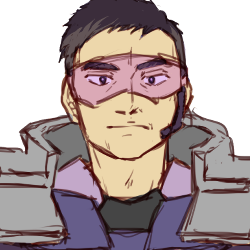
▮▮▮ IKUMA KINAKI ⸻ ❛ Machinator ❜
〔 father 〕
For much of her life, Karamea's closest relationship was with her father. She shares with him a retiring, lone-wolf personality, social awkwardness, blunted emotional affect, a preference for logic and rational calculations, and the tendency to keep important things to themselves. Ikuma was often the parent she looked for advice and guidance from, and the parent whose instructions she would more readily follow, even when she thought she knew better. She grew up watching him closely, on TV and at the dinner table, and mimicked many of his mannerisms and ways of making decisions when her own limited social skills and wisdom failed her. When she deliberately did something wrong as a child, his disapproval was the most effective deterrent; when she accidentally did something wrong, his quiet faith was what encouraged her to get up and try again. Ikuma did his best to provide her with an unwavering role model, but where other men might have hidden their own failures from their children, he chose to be open and honest with Karamea about what those failures were, and the consequences they might cause for himself and for others. Above all, he tried to model self-awareness for her, and the ability to recognise and address one's own shortcomings.
As an adult, Karamea credited his parenting as the major factor in how she became so successful, and also in why she never went down the path of villainy. She retains a close relationship with him throughout his life, taking time out from her busy schedule to spend a day or two in Sapporo tinkering with his machines or racing custom drones against him.
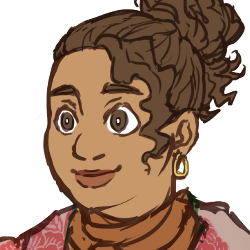
▮▮▮ ĀWHINA RUTHERFORD
〔 mother 〕
Karamea's relationship with her mother is close, though their mismatched personalities do clash every so often. Awhina is highly extroverted, social, and an enthusiastic team player, whereas Karamea is definitively not. She is also an empathetic, considerate person who carefully studied her daughter's preferences and mannerisms, and changed her own behaviour where necessary to ensure that she did not cause her undue distress. When she was much younger, Karamea thought that her mother was a quiet, gentle, and thoughtful by nature. As she grew older and developed the ability to regulate her own sensory environment, Awhina gradually let more of her natural personality show. This was not as stressful for Awhina as it might have been for other women; she was already a natural chameleon who adapted her personality to the culture she lived and worked within by preference. Karamea is fascinated and deeply impressed by her mother's code-switching; she knows she would find it impossible to replicate herself.
Their relationship earlier in Karamea's life tended to take second string to Karamea's relationship with her father, with whom she shares much of her personality. As Karamea started her own family with Toshinori, she increasingly turned to Awhina for advice and commiseration with issues the men simply did not have any experience with. Awhina had never resented Karamea's closeness with Ikuma, but she found her new relevance to her daughter's life deeply satisfying.
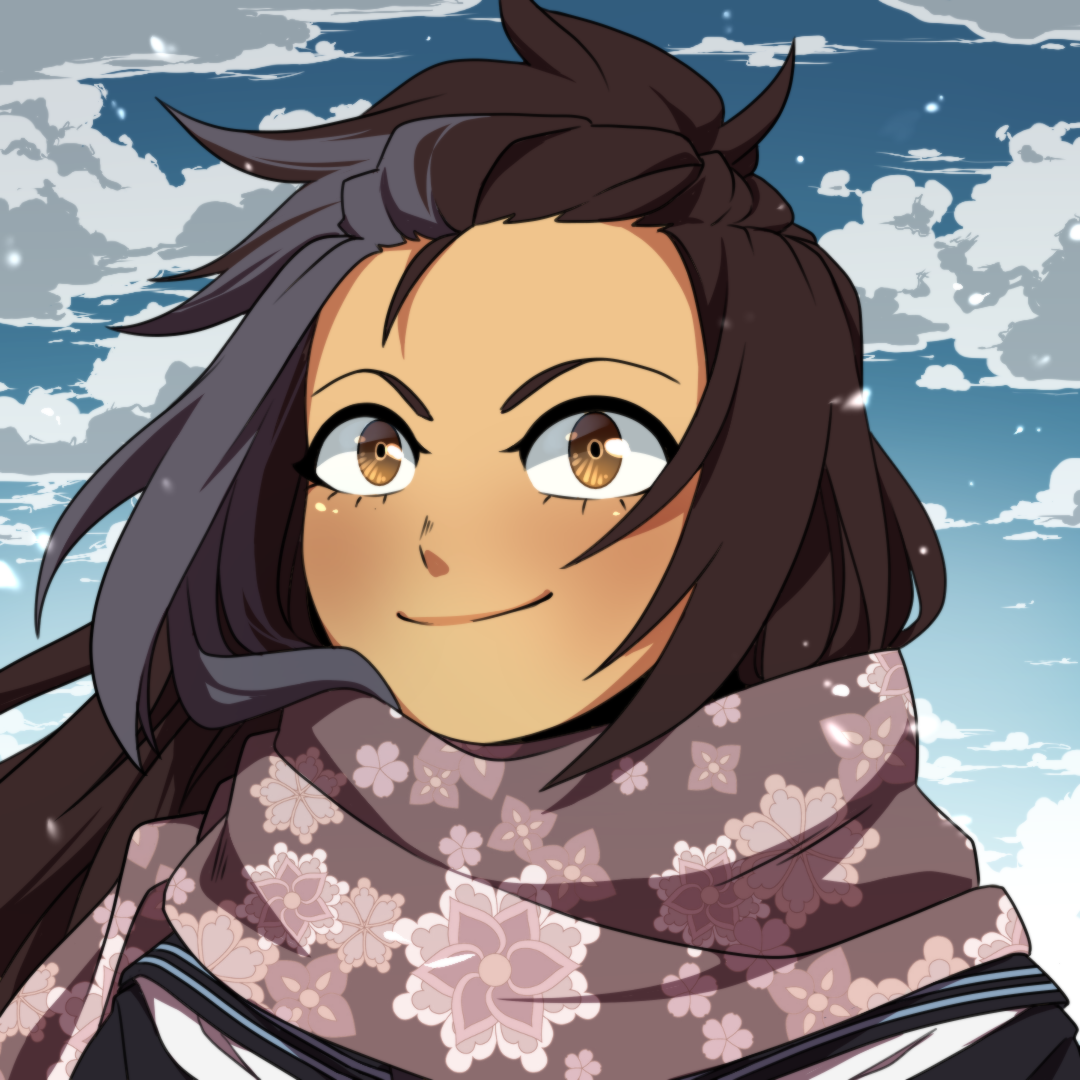
▮▮▮ RIKI KINAKI
〔 younger sister 〕
Riki was born when Karamea was 14, and the age gap between them has significantly affected the development of their sibling relationship. They have never fought and seldom have reason to cooperate on tasks, as Karamea had moved out to attend high school the year Riki was born. They care about each other, but their relationship was for a long time built around general family ties rather than a shared childhood. Following Karamea's illness, she was able to bond with her then ten-year-old sister for the first time. While their personalities are very different, they both had had experience dealing with people like each other; Karamea is as introverted and quietly watchful as their father, while Riki takes after their mother with her energetic and sometimes aggressively social nature. Encouraged by their parents' example, they take pains to communicate clearly between themselves, knowing that neither exactly speaks the same unspoken language.
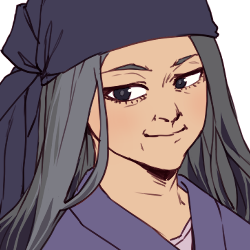
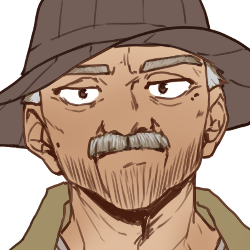
▮▮▮ TATSUO & KUREHA KINAKI
〔 paternal grandparents 〕
Aside from her sharp temper, Karamea resembles Tatsuo in personality a great deal. This could have fostered a close relationship, except each is entirely uninterested in the other's intense interests. Karamea understands him entirely, but finds interacting with him somewhat awkward. The same goes for Tatsuo. He cares for her a great deal, and is often surprised by just how much she sometimes acts like him, but isn't much more capable of reaching out to bridge the gap than she is. Karamea's relationship with Kureha is much closer; the Kinaki grandparents often babysat when she was little, and given their personalities that meant Kureha handled most of the work. Karamea loves and respects her grandparents equally, but emotionally she's most comfortable with Kureha and finds her easiest to communicate with.
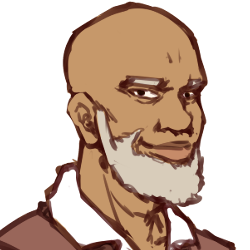
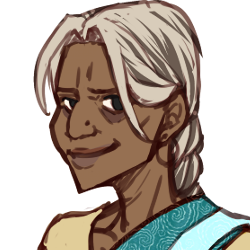
▮▮▮ ERIHANA RUTHERFORD & ANJALI CHAUHAN
〔 maternal grandparents 〕
.
.
FAMILY
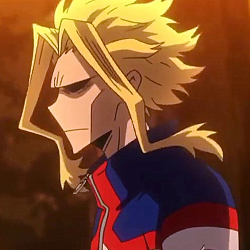
▮▮▮ TOSHINORI YAGI ⸻ ❛ All Might ❜
〔 husband 〕
Karamea and Toshinori met at a live-in rehab clinic for people with severe physical disabilities, and quickly developed a friendship based on commiserating over their respective disabilities, a shared sense of humor, and a mutual sense of isolation from society. They carried on a long-distance friendship for just over a year before Karamea returned to Tokyo, at which time Toshinori offered her use of his apartment as she had had trouble finding a place of her own that was within her budget and provided her the facilities that she needed. This arrangement was originally intended to be short-term, but to their surprise they found that living in close proximity to each other was enjoyable, and they made the mutual decision to continue sharing the apartment. Their relationship took a turn for the romantic in their third year of living together, and after surviving the upheaval of Toshinori's retirement and relocation to Musutafu became a successful longterm partnership.

Despite their vastly different personalities ━ Toshinori is just about Karamea's polar opposite ━ they get along smoothly with each other. They share two core traits: their own social awkwardnesses, and an instinctive sort of self-awareness, along with similar senses of humor and the experience of having spent their lives separate from much of human society due to circumstances beyond their control. They prioritised clear communication between them from the start, and as a result are able to avoid the misunderstandings and unintentional neglect that might otherwise result from such divergent personalities. They balance each other out, working well as a team (and where Karamea would never have predicted this, Toshinori is unsurprised — she has more than a few things in common with Sir Nighteye). They share the experience of being chronically ill, which few of their respective friends and family truly understand.
To the onlooker, they often appear more like close friends than romantic partners. Their body language tends to lack much of the typical romantic gestures; they never hold hands and seldom kiss or hug. Toshinori will touch her shoulder or loop an arm around her back, Karamea will lean into him in response. She often lets Toshinori speak for her in public, texting him her thoughts and letting him be her intermediary, particularly when they are required to interact with people she does not know well. Toshinori is happy to head off the attention for her, knowing that she finds it so much more exhausting than he does. Even when they are in the same room, they often hold lengthy conversations over webchat clients. It was Toshinori who suggested this method ━ he knew that Karamea found conversation easier over text, and while at first he would respond to her aloud, he tried replying in text, and found he preferred it.
They married via registry shortly before Mako's birth, and held a small private ceremony the year afterward, attended by only close family and friends. Toshinori had thought about offering to take Karamea's name, but when he mentioned it to her she told him she knew his family name meant a lot to him emotionally, as a remembrance of the loved ones he'd lost, and she didn't like the idea of taking that from him. For the same reason, she told him she wanted the children to carry his surname. Karamea decided after some thought and discussion with her parents to take Toshinori's name legally, but continue to use her maiden name informally, more or less as part of the Kinaki Technologies brand. On paper, Karamea is the head of household: Toshinori successfully argued that his age and retired status made her the better candidate.
❛ I always expected to be alone my whole life, and to be honest with you I was okay with that. Being around people is almost always hard work for me. But... you seem to be an exception to that rule, for reasons I can't quite comprehend. I'd far rather be with you than alone. ❜
— Karamea to Toshinori, deciding that a romantic relationship seems like a good idea.
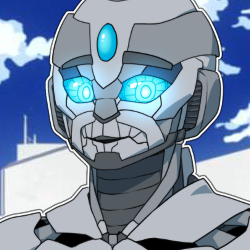
▮▮▮ KAHURANGI YAGI ⸻ ❛ Orichalkane ❜
〔 eldest daughter 〕
Karamea gave birth to Kahurangi at 32 years old, and from the start she felt a certain kinship beyond the family ties for her robotic daughter. At first, Kahurangi was an enigma, slow to speak and lacking facial expression, a baby who did not sleep, cry, or laugh. But Karamea herself had been an unusual baby, and due to her Quirk she was uniquely suited to communicate with Kahurangi, employing a digital connection which she had first sensed while Kahurangi laid in utero. She and Kahurangi communicated via simple programs over a hardline from three days after the birth, helping Kahurangi to develop her linguistic programs. Karamea has since then been Kahurangi's closest human connection.
Despite their surface similarities, Karamea and Kahurangi have very different personalities. As she grew, Kahurangi became a headstrong, dominant, outgoing child, someone who did not specifically seek out command but tended to end up in leadership positions through sheer force of personality. Although both possess striking intellectual capabilities, Karamea is primarily concerned with practical knowledge, whereas Kahurangi seeks knowledge for its own sake and is a walking repository of facts you never wanted or needed to know. Their approach to problem-solving is different ━ Karamea is cautious and plans her attack carefully, while Kahurangi tends to dive in and solve each part of the puzzle as it arises. They can sometimes come to conflict over these differences ━ each is equally convinced that their approach is the correct one ━ but Karamea has learned to compromise over the years, and this was one of the first skills she taught Kahurangi to use. Their interactions can often seem like business transactions or political negotiation because of it; their affection for one another is subtle, and it tends to be expressed in gestures and text rather than in spoken word.
Kahurangi's career as a Hero stresses Karamea out. She doesn't understand what drives her to constantly put her life on the line when she could excel in so many other fields, but she has to admit that Kahurangi is the most durable of her children by miles. At first, she tried to convince Kahurangi to join the family business instead. Kahurangi asked her, "Why can't I do both?" Karamea had no good answer to this. Kahurangi is not an official employee of Kinaki Technologies, but she does drop in from time to time to help Karamea with the bigger projects. She refuses to take payment for her work, so Karamea got sneaky and donates large sums to Deku's Agency charities every time.
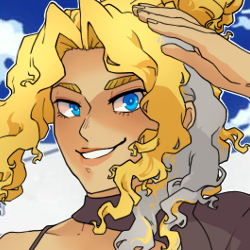
▮▮▮ MAKO YAGI
〔 younger daughter 〕
Mako has occasionally been called Toshinori's slightly shorter, opposite-sex clone, and she is certainly very much a daddy's girl. True to the description, Karamea employs much of the same communication methods with Mako as she does with Toshinori. These tended not to work so well when Mako was younger, and ruled by strong emotions that often overwhelmed her ability to communicate as clearly as a young child is capable of. Karamea was forced to leave much of her early rearing to Toshinori, who understood much better what Mako was going through. She often worried that this early separation would have a detrimental effect on Mako, and in some ways it has left its mark. Even though Mako is the boldest and the bossiest of the four children, she is also the least confident, often feeling as though she needs to measure up to some vaguely-expressed ideal that even she isn't sure exists. As Mako grew, Karamea did her best to provide her with the reassurance and emotional support that she really needed, but often this was just not quite possible. This void between Mako's emotional needs as a child and Karamea's ability to fulfil them reached a peak when she was ten, when therapy intended to contribute toward an ADHD diagnosis uncovered a deep well of insecurity and self-doubt.
Fortunately, as Mako grew older, their relationship became more comfortable. Karamea did what she could to find ways of bonding with her and communicating her own love and affection in a way that Mako could process. Mako in turn developed the skills of observation and the familiarity with her mother to realise that even her subtler gestures and words carried weight. Repairing this relationship took much of Mako's early teens, and a lot of therapy, shared and separate. Mako is always going to be a daddy's girl, but, going into adulthood, her relationship with her mother is about where she always wanted it to be.
Mako's acting career began when she was a child, in school plays and drama clubs. Toshinori was her main supporter, having a little knowledge in the field as she moved into film productions, but Karamea never hesitated to allow her to chase her dreams ━ as long as Mako kept up with her schoolwork, of course. Mako's first major film role nearly fell through due to lack of funding, so Karamea gave the directors a grant that allowed them to finish. That film won awards at several festivals, and kickstarted not only Mako's career but several others on the credits. The directors asked Karamea if she'd be willing to establish a formal grant to support independent artists in general; Karamea said she'd think about it, and then Mako heard about the idea and begged her mom to agree. Karamea laughingly acquiesced.
❛ My biggest regret as a mother is not realising sooner that you had no idea how much I loved you. ❜
— Karamea to Mako, looking back on their earlier relationship.
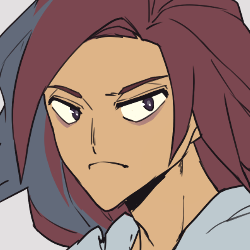
▮▮▮ HAYATO YAGI
〔 elder son 〕
Of all her children, Hayato is the one most similar to Karamea, both in appearance and personality. Hayato has Karamea's intelligence, her lack of empathy and sympathy, her social difficulties, her unwillingness to suffer fools — and her ability to be a giant bitch when the mood strikes. They're both the sort to sit motionless and silent in a dark room on their own devices, and that's quality bonding time for them. Karamea has experienced many of the same struggles in life, which has allowed her to guide her son through his own issues and help him figure out what solutions work best for him.
As a teenager, Hayato went through a similarly antisocial phase as Karamea once had. Like her, he got himself into trouble on the Internet. Unlike her, his technological skills weren't strong enough to get into quite so much trouble. When things blew up in his face and his parents found out, Karamea tried the same technique on him as her father had used on her: showing him the ultimate results of the path he was stumbling blithely down and telling him to make a choice, because if he did end up doing bad things with his life she would personally stand in his way. Hayato, fourteen at the time, took a little longer to stew in his emotions than she had, but ultimately took her seriously and changed his ways. The fact that changing his behaviour coincided with people, in general, treating him better, helped cement his decision.
As an adult, he studied systems engineering at university and was given a role in the backend development of Kinaki Tech's social media project. Hayato had a little initial conflict with coworkers who thought he would just be a nepotism hire, but he proved quickly that he would pull his weight in the job. Karamea had ensured that both Hayato and his managers knew she expected him to be treated as any other employee, with no special treatment and pay at the same scale. Hayato would not be promoted just because of his parentage (and Karamea privately suspected that he didn't have the temperament for leadership anyway).
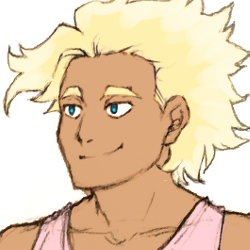
▮▮▮ AKINORI YAGI
〔 youngest son 〕
Born when Karamea was 40, Akinori was a surprise, but, to be sure, a welcome one. Like her, Akinori is autistic, socially out-of-key and prone to narrow but intense interests that dominate his life. Where Karamea was a stubborn and temperamental child, however, Akinori is comparatively much more chilled out. He lacks her drive and her perfectionistic tendencies, which sometimes drives her nuts although she generally manages not to let it show. In most situations, however, she finds his dreamy personality calming. She will often come home from late nights at work and spend an hour or more sitting with him in silence, watching him draw. She encourages him to make goals and reach for the stars where she thinks it is appropriate, but she is also wary of putting him under pressure. Akinori often comes to her when he is feeling overstimulated; when she isn't around, he will hide in her dark workroom and let the humming of server fans lull him back to his normal dreamy state.
Karamea is fond of telling Toshinori that Akinori's artistic abilities must have come from his side of the family, as neither she nor any of her relatives have much skill with a pen and paper. She has bought him art supplies and reference books for most of his birthdays, and financed art classes when he grew a little older. She is proud of his talent, even though she worries that it may not be an easy career to choose, and is somewhat relieved when Akinori chooses instead to become a first responder as a primary occupation. Her objection is less the financial difficulties unknown artists often face, and more the issue of balancing his passion for art with the necessity of creating things he would not necessarily able to put his heart and soul into for money. She knows exactly how deep his passions run, because she experiences the same, and the last thing she wants is for him to burn out on those passions.
Akinori's chosen career worries Karamea a little, but firefighting isn't quite as dangerous as Heroics so she's happy on that account. She's much happier with his choice of fiancee; she wasn't expecting him to get engaged at only eighteen years of age, but having met and spent time with Ayaka she thinks they're a very good match. Ayaka's surprise first pregnancy was a little stressful, and Karamea is upfront that she's not very good with young children and may not be much of a help, but she'll try. Fortunately Ayaka is a natural mother right from the start, and Akinori just as natural a father. Having little Katsunori tear around the house ends up being more nostalgic than anything else.
▮▮▮ AYAKA KASHIWAKI
〔 future daughter-in-law 〕
When Akinori was fourteen, he made friends with a girl online. Karamea took little notice of this; having online friendships made intuitive sense to her and it didn't seem like a big deal at the time. When Akinori was seventeen, he came to his parents with a serious request: his good friend was about to age out of foster care, and would lose the government funding that allowed her foster mother to support her significant needs. Karamea and Toshinori quickly agreed to pay for Ayaka's living costs. Shortly afterward, Akinori took them up north to meet Ayaka in person. Karamea was fascinated by Ayaka's Quirk (which Ayaka found wholly a relief given that most people were repulsed by it), and was amused to see that her youngest child got along so well with someone even stranger than her. Still, she didn't notice their budding romantic relationship, and was shocked later on when Akinori and Ayaka announced their engagement.
(In fairness, the strangest part was the idea that soon she would have a daughter-in-law, and would herself be a mother-in-law. That broke her brain a little.)
Ayaka joined them in the family household after the engagement. She was anxious enough at first that even Karamea picked up on it, and her tremulous helpfulness was both irritating and saddening. Ayaka had only had two people in her life ever treat her with kindness and respect. Karamea ruthlessly stamped down on her feelings of irritation and did her best to make sure Ayaka could relax and settle in to her new home. When she found out Ayaka was interested in website design, she offered to teach her the relevant coding languages. Fortunately, Ayaka turned out to be a quick, talented learner, and so their tutoring sessions went well. Karamea paid for her to do an online training course, so that Ayaka might have the ability to work from home if she ever wanted or needed to.
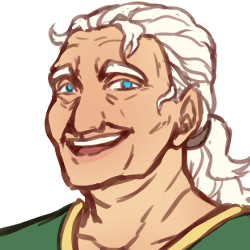
▮▮▮ NONOKA YAGI
〔 grandmother-in-law 〕
Karamea did not meet Nonoka until after the incident at Kamino Ward. She was initially surprised to learn that Toshinori had any relatives left at all. Nonoka lived in an assisted living home in Tokyo at the time, due to difficulties caused by arthritis and not-quite total age-related blindness. She demanded to meet Karamea, so Toshinori took her along. Nonoka immediately took a liking to Karamea, pronouncing her "a fierce young thing" and joking to Toshinori that he took after her late husband, who had also been more than a decade older than his wife. Karamea appreciated Nonoka's wit and forthright wisdom, and found her sense of humor amusing, resembling Toshinori's as it did. Nonoka's favourite ongoing joke, particularly as time passed and Karamea became the primary breadwinner in the family, is to call herself and Karamea 'the pretty young trophy wives'. Nonoka, who is six foot three even at 97 years old and worked in a road repair crew well into her seventies in order to help support her disabled husband, is the exact opposite of a trophy wife, to say nothing of Karamea, but this is the punchline of the joke. Karamea thinks it's the funniest joke she's ever heard, and will crack up every time Nonoka brings it out.
After Toshinori and Karamea build their own house in Musutafu, they include in the design a suite of rooms for Nonoka and hire a qualified caretaker for her. She lives to 105, which means she gets to meet and sometimes play babysitter for the kids, with her caretaker's help. Like Toshinori, Karamea finds her an agreeable housemate.
❛ You know, I am glad that he has someone like you to rely on. That man has never done things by halves, even when he was a kid, and it does my heart good to see so many people standing by him. ❜
— Nonoka to Karamea, in between spilling all Toshinori's embarrassing baby stories.
FRIENDS & ACQUAINTANCES
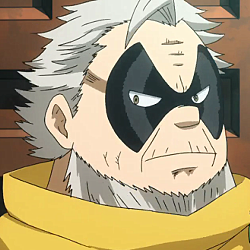
▮▮▮ SORAHIKO TORINO ⸻ ❛ Gran Torino ❜
〔 acquaintance 〕
The first time Karamea met Torino, they got into an argument. She respects his vast experience but dislikes his abrasiveness; he respects her readiness to stick to her conclusions but finds her general blunted affect annoying and is somewhat wary of her Quirk, having personal experience with powerful technopaths. They’re capable of being adults about it if forced to work together, but this tends to involve trying not to stay in the same room for long. Toshinori is somewhat disappointed by this, but unsurprised, knowing their personalities; when they butt heads too badly he points out how similar they really are and this tends to derail whatever argument is happening.
Despite this, they turn into a united force when presented with the issue of Toshinori's ongoing determination to ignore his ill health. Karamea feeds information to Torino regarding Toshinori's activities during the period after the Kamino Ward Incident, and does her best to prevent him from falling into the same denial he had experienced after his initial injury. Torino returns the favor, sharing his experience of that period and backing her up when necessary.
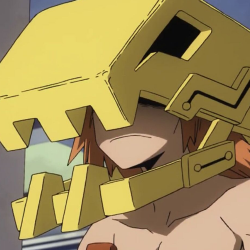
▮▮▮ HIGARI MAIJIMA ⸻ ❛ Power Loader ❜
〔 friend & coworker 〕
Power Loader is a big name in the Hero Support business, as someone who blurs the lines between the professions. Karamea first met him through her work, when he came looking for potential internships for his Support Course students. Power Loader is her favourite member of the UA staff, because he understands the whole support industry, where Heroes often don't, or even are unaware of what goes on behind the front lines, so to speak, because they aren't directly involved with these things. Karamea can be a bit of a snob about the tech she helps create ("How can you use it properly if you don't know anything about how it works?") but to her credit she's mostly quite self-aware about this tendency. Power Loader can commiserate with her, and while they don't have much of a relationship outside school they get along well in class and in the offices.
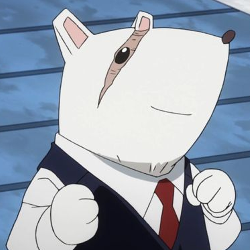
▮▮▮ PRINCIPAL NEDZU
〔 friend 〕
Karamea gets along with Nedzu like a house on fire, from which there may be no survivors. They are two very intelligent and very rational people with a mutual tendency to analyse the world around them and the people in it. They recognise this similarity in each other and it fascinates them. They play strategy games like chess occasionally (Nedzu always wins) and debate the finer points of various current events. She enjoys the challenge of matching wits with him, and he enjoys the novelty of someone who can think on his level. Karamea actively likes Nedzu, rather than simply being loyal to him as she is to most people; he has blanket permission to climb on her walking chair as the mood takes him.
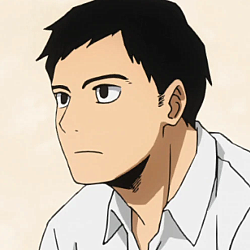
▮▮▮ NAOMASA TSUKAUCHI
〔 friend 〕
First introduced to each other by Toshinori, Naomasa and Karamea regard each other with a sense of comfortable appreciation. Naomasa finds her honesty relaxing and her social awkwardness refreshingly free of guile, and unlike many it does not take him long to see why she gets along so well with Toshinori. Karamea likes Naomasa in turn; she appreciates his easygoing manner and his willingness to cut to the chase. Like Nedzu, Naomasa has the sort of analytical, focused personality that brings out Karamea's own urge to categorize and analyse the world around her, meaning that she finds him unusually easy to converse with━they often tend to end up discussing Naomasa's cases, and scandals observed in the world around them, in a manner that sometimes strikes the onlooker as almost like gossiping. Emboldened by these conversations, Naomasa has occasionally recruited Karamea as a civilian consultant on cases requiring high-level digital forensics expertise.
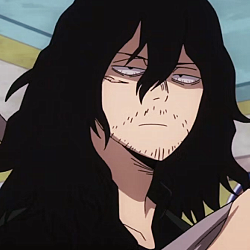
▮▮▮ SHOUTA AIZAWA ⸻ ❛ Eraserhead ❜
〔 coworker 〕
Karamea and Aizawa are very similar on the surface, but this is an illusion fueled by the fact that they are both overtired workaholics with resting bitch faces. The more people point out this surface similarity, the more both of them begin to resent it. They get along reasonably well otherwise, but the bulk of their relationship is work-related communication; otherwise, their interactions tend to be limited to swapping tips for dealing with sleep deprivation and good sources of energy.
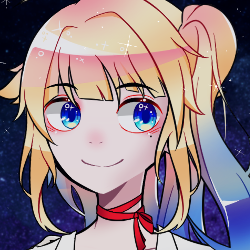
▮▮▮ KARURA TORISAKA
〔 personal assistant 〕
One of the first official employees of Kinaki Technologies, Karura was hired to take care of a wide range of daily tasks that Karamea had run out of bandwidth for. A consummate professional, she impressed Karamea with her work ethic, initiative, and her general ability to make friends and find solutions that satisfied people. Their professional relationship quickly became close and trusting. Karura's specialty is in logistics and accounting; she also took on a financial advisor role early in the company's development. Her work allows Karamea to focus on product development and the mad science that made Kinaki Technologies famous.
Karura thinks her boss is fascinating, and has always enjoyed working for Karamea. She's learned a lot in the process, and been involved in some very significant processes. As an early hire, part of her remuneration was given in company shares. These shares are now worth millions, making Karura wealthy in her own right.
▮▮▮ RYDER ROKUBASHI
〔 technical assistant 〕
.
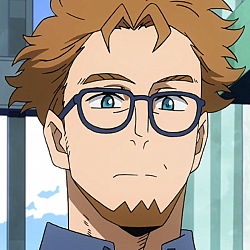
▮▮▮ DAVID SHIELD
〔 professional acquaintance 〕
Karamea has met David Shield several times: once at a meeting between two international support tech development companies when she was 23, and the rest at various industry conferences since. He had taken note of her, as most scientists and tech people do, but she did not make a great impression at first; he was not sure what to do with her flat effect at all. Their specialties seldom overlap, as David is primarily a textile engineer and Hero suit designer, while Karamea is primarily a programmer and engineer, so they have never interacted for long. Karamea respects his achievements, however, and he in return was impressed by her achievements at such a young age.
They have come to (very polite and awkward) conflict over I-Island. Karamea visited the island once as part of a group from the Minato Company, and decided she hated the entire concept. She does not trust the island's defenses, and believes that it places global technological advancement at risk to have the world's foremost experts in so many different fields all in one place at the same time. She was called overcautious and a Luddite by some (though not David himself) for this opinion, but was eventually proven correct by the villain attack on the I-Expo. Toshinori shared David's part in the invasion with her, swearing her to secrecy; Karamea intellectually understands the reasoning behind David's actions, but thinks the plan was never going to be anything but pointless. She will admit to being very curious about the Quirk amplification device he built, however.
OTHERS
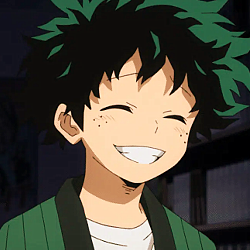
▮▮▮ IZUKU MIDORIYA
〔 mentee-in-law 〕
As Toshinori's protege, Karamea comes to know the young Hero well over the years. At first their interactions are largely dependent on Toshinori: he introduces them to each other, and for the majority of Izuku’s high school years they mainly meet in the context of both being around Toshinori at the same time. Izuku's intensely analytic personality jives well with Karamea; she likes to provide answers whenever she can and will happily brainstorm with him if she can't. He was a little intimidated by her at first, but quickly recognised a fellow nerd and began to open up. She is often impressed by his in-depth notes on his fellow Heroes, and has been known to ask to look at his notebooks when she has a relevant commission to work on.
After Izuku graduates, they begin to meet more often as equal adults. When Mako is born, Izuku offers up his own time to babysit Kahurangi, and from there on he becomes an honorary uncle to the Yagi children. When Izuku becomes the No.1 Hero, he asks Karamea to create an AI to handle various functions in a high-tech suit he has commissioned from elsewhere. Karamea agrees to the collaboration, and over the testing period she and Izuku develop a strong working relationship.
Later on, Izuku takes on Kahurangi as an intern, and then as a Sidekick. Karamea worries, as any mother would, but trusts Izuku to look after her more than she would any other Hero.
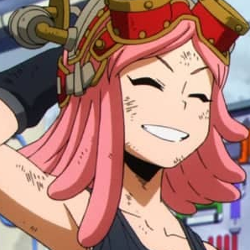
▮▮▮ MEI HATSUME
〔 student 〕
Mei is both Karamea's biggest headache and her brightest hope for the future. Upon taking up her teaching assistant position with the Support Department, the then second-year student quickly became Karamea's favourite student, both for her sheer productivity and for the entertainment value of her frenetic, creative, ever-optimistic personality. Mei learns quickly, and is never afraid to ask for Karamea's assistance or feedback on a particular creation━when she realises she needs it. Karamea does her best to rein in Mei's wilder creative impulses, but these impulses not unusually feed on Karamea's favourite aspects of her work, and when their respective geniuses are trained on the same problem, not much can stand in their way. After graduating, Mei takes a job with Karamea's former coworkers in the Minato Company, then joins her at Kinaki Technologies. They collaborate on several large ongoing projects, up to and including Karamea's Project Jaeger.
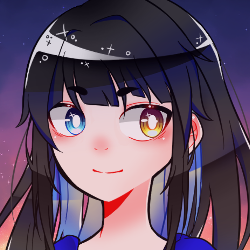
▮▮▮ CHISHIKI SOUMEI
〔 high school rival 〕
'Rival' perhaps is an understatement; Karamea and Chishiki felt real enmity for each other in high school. They were two extremely driven, competitive young girls celebrated as technological savants by their teachers, duking it out for the title of #1 student in their year group (and occasionally all of Japan), and what started out as a rivalry rapidly escalated into active sabotage. Karamea often had the technological upper hand, due to her Quirk, but Chishiki's social skills and tactical ability kept her even. Both girls were reprimanded on occasion ━ none of their teachers were blind to the cold war going on between their two brightest young stars ━ but in the end the only thing that ended their conflict was graduating and moving on to university. Chishiki went into microelectronics, while Karamea studied computer engineering, and these differing specialties kept them apart often enough for them to forget the hatred between them. Karamea has a long memory and a tendency to hold onto grudges, and she still treats Chishiki with caution and distrust, but these days she realises that much of what drove their conflict was petty teenage angst, and not worth continuing the fight. (Chishiki has come to much the same conclusion, although Karamea is unaware of this.)
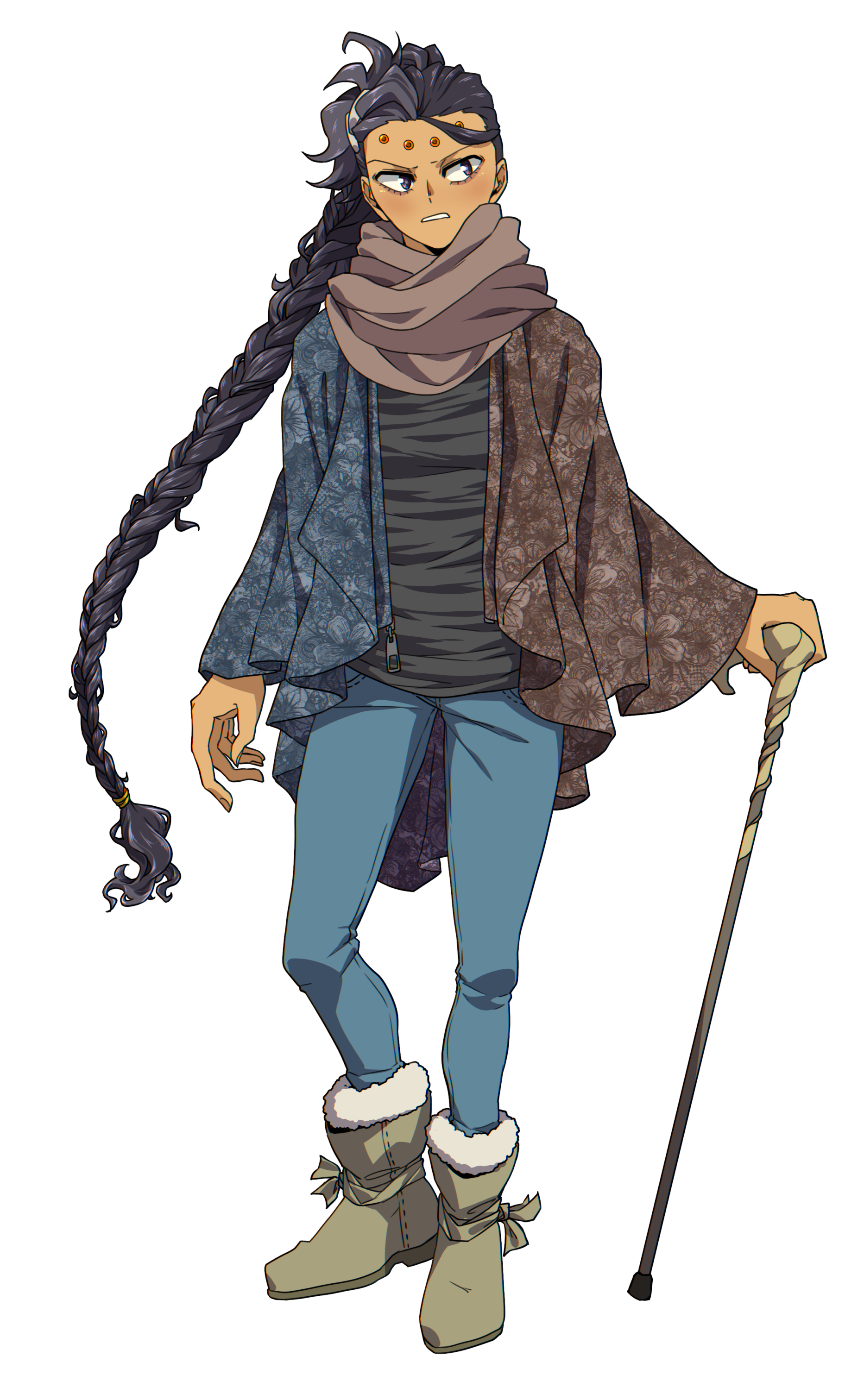
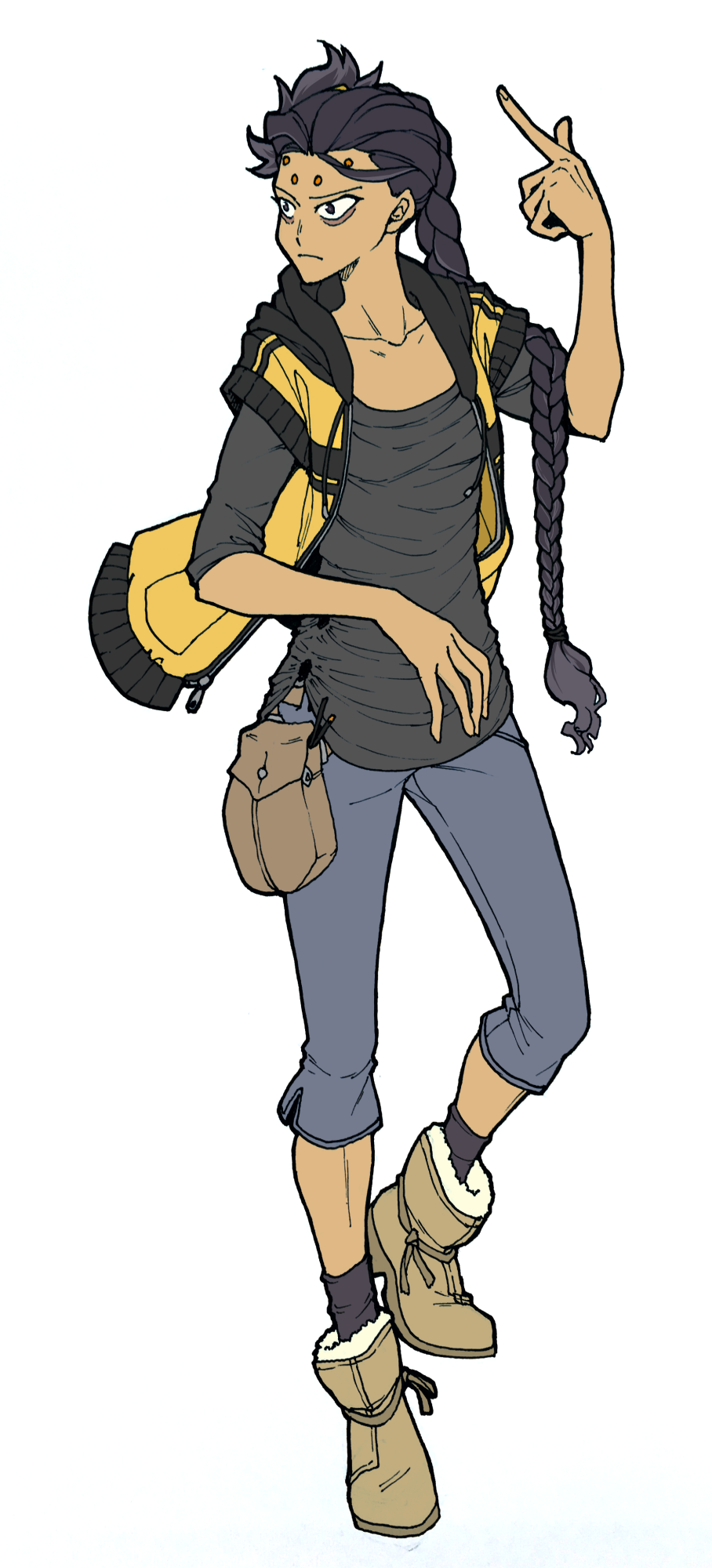
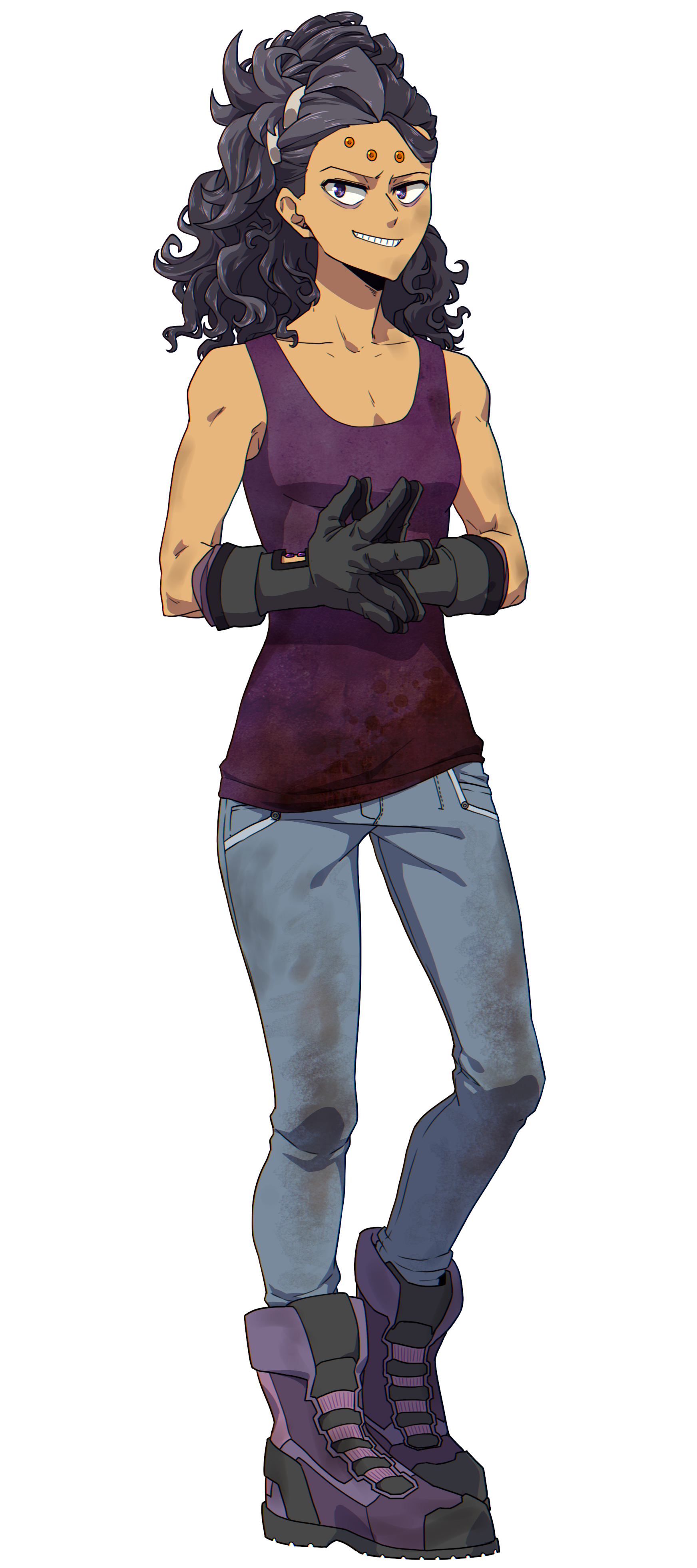
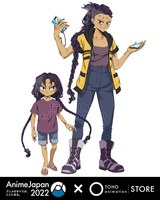





Comments